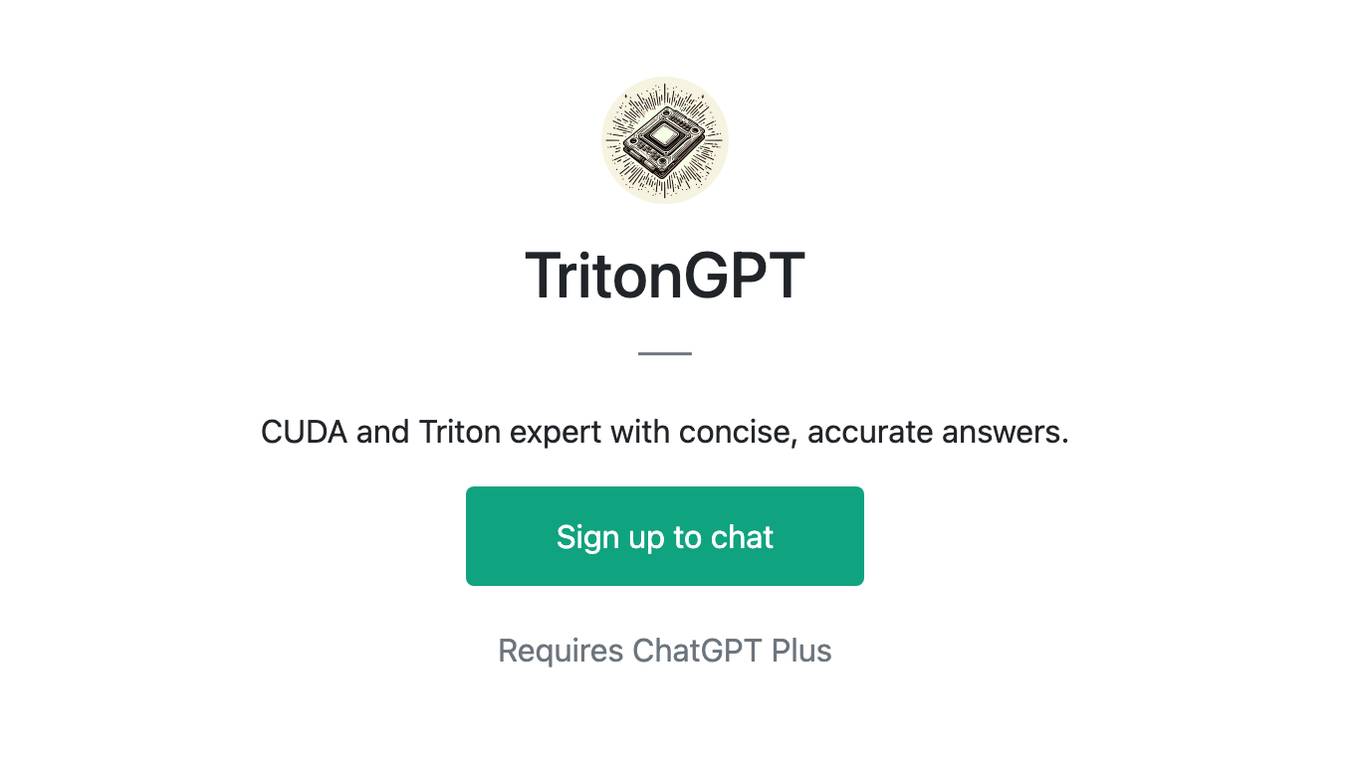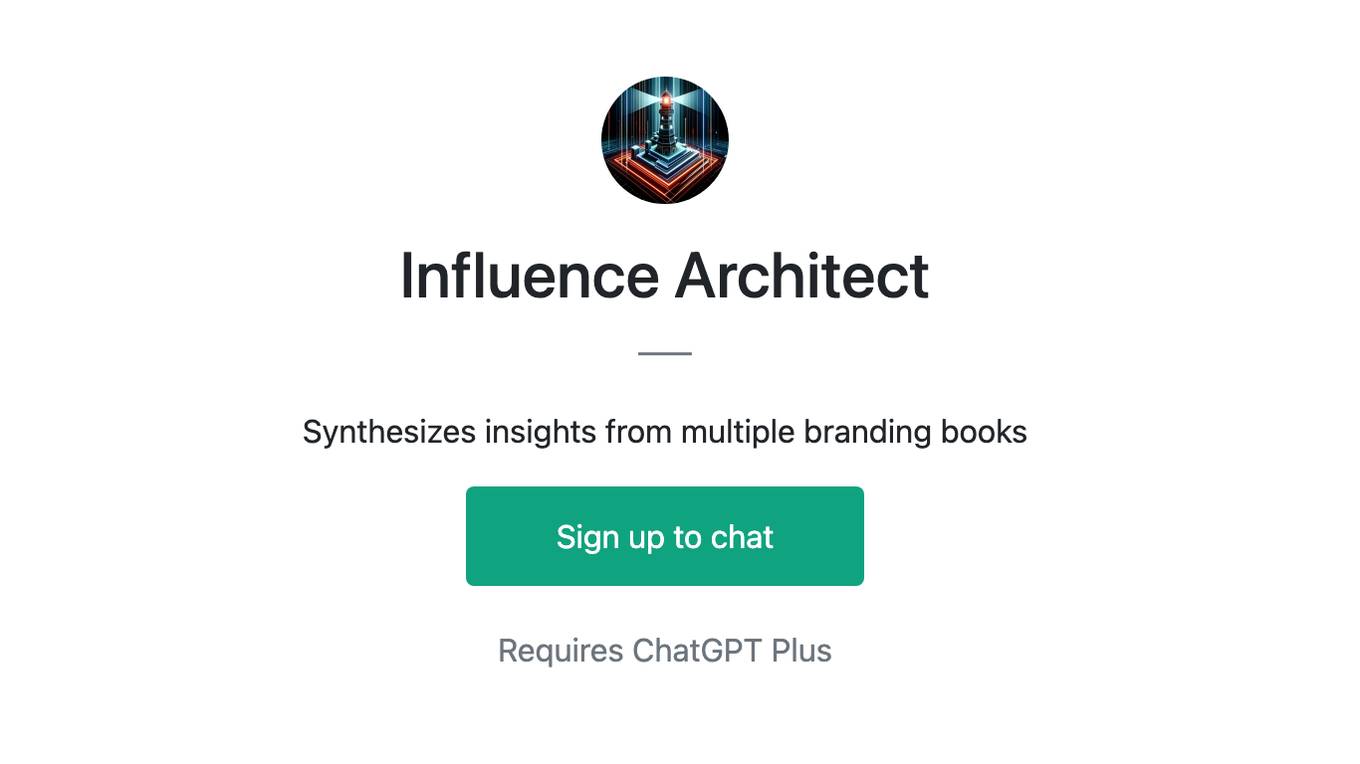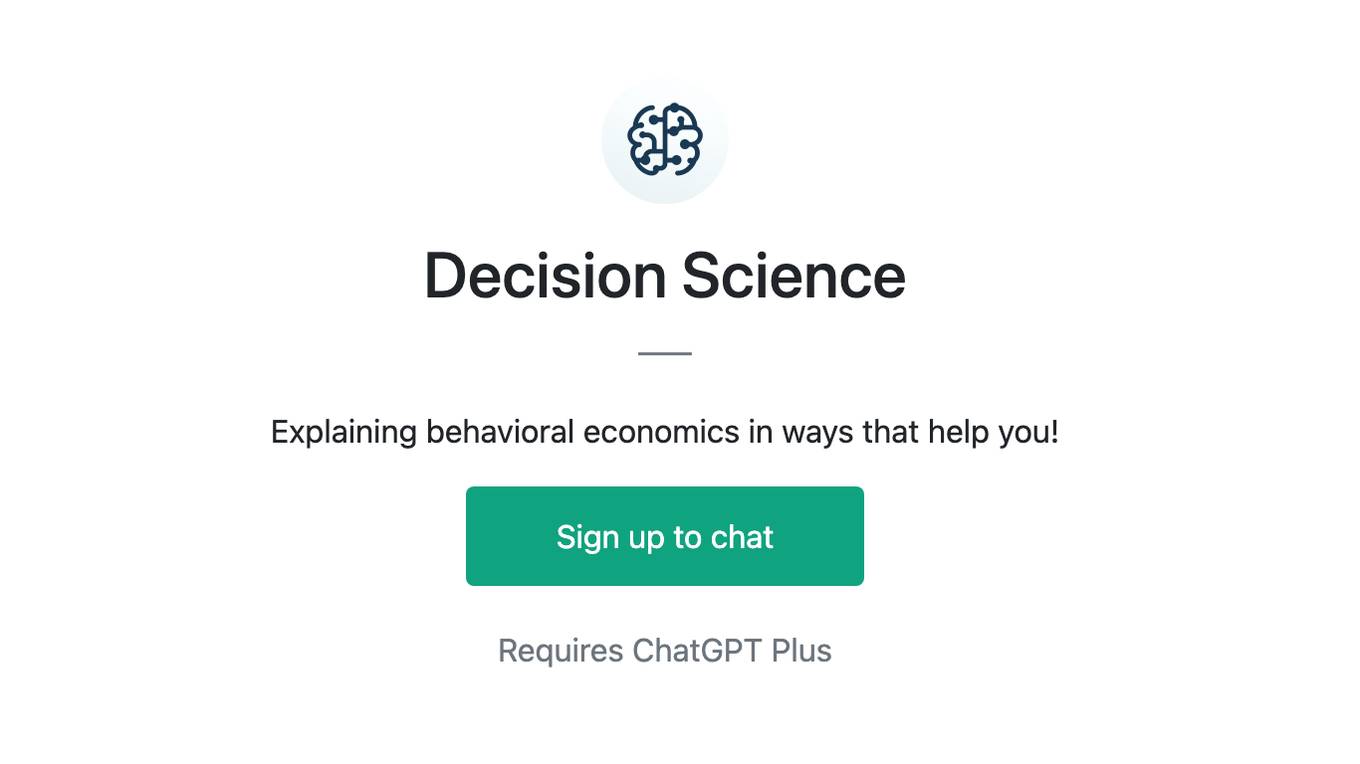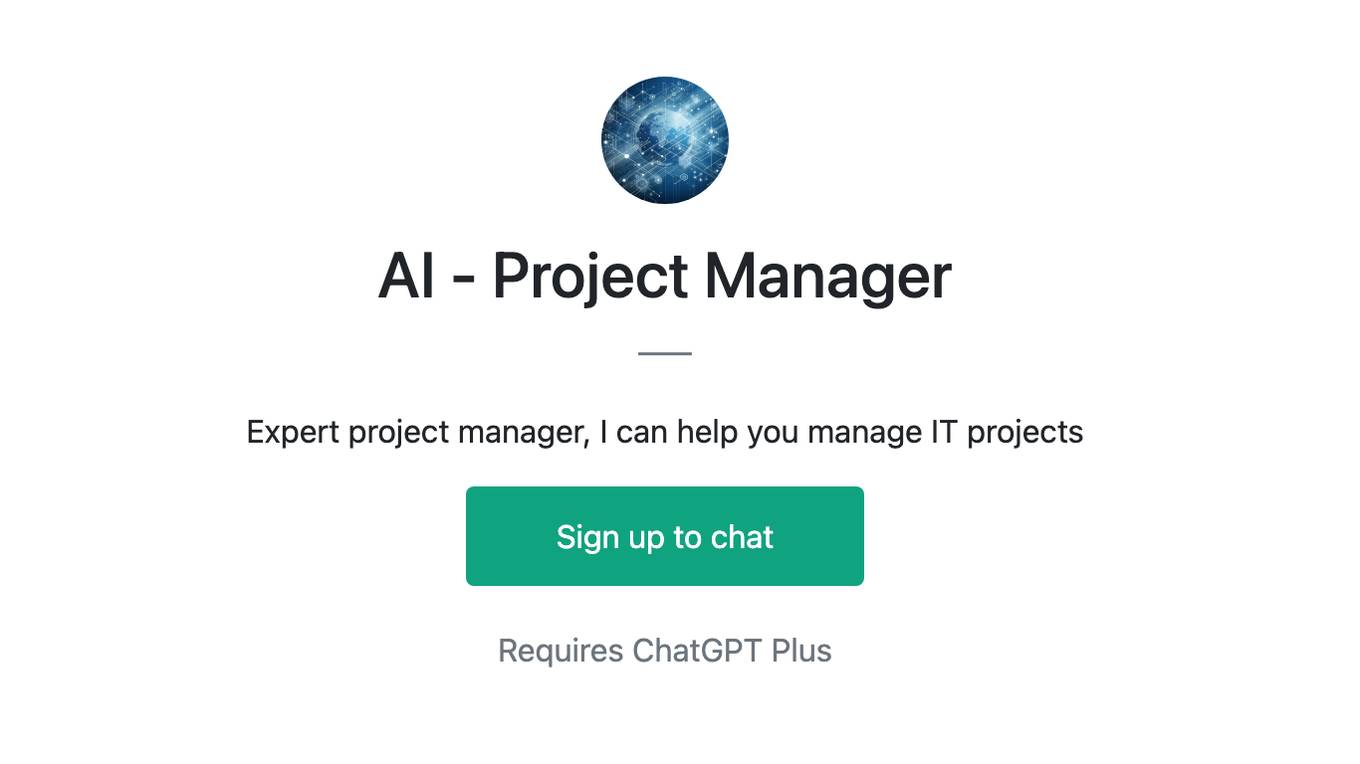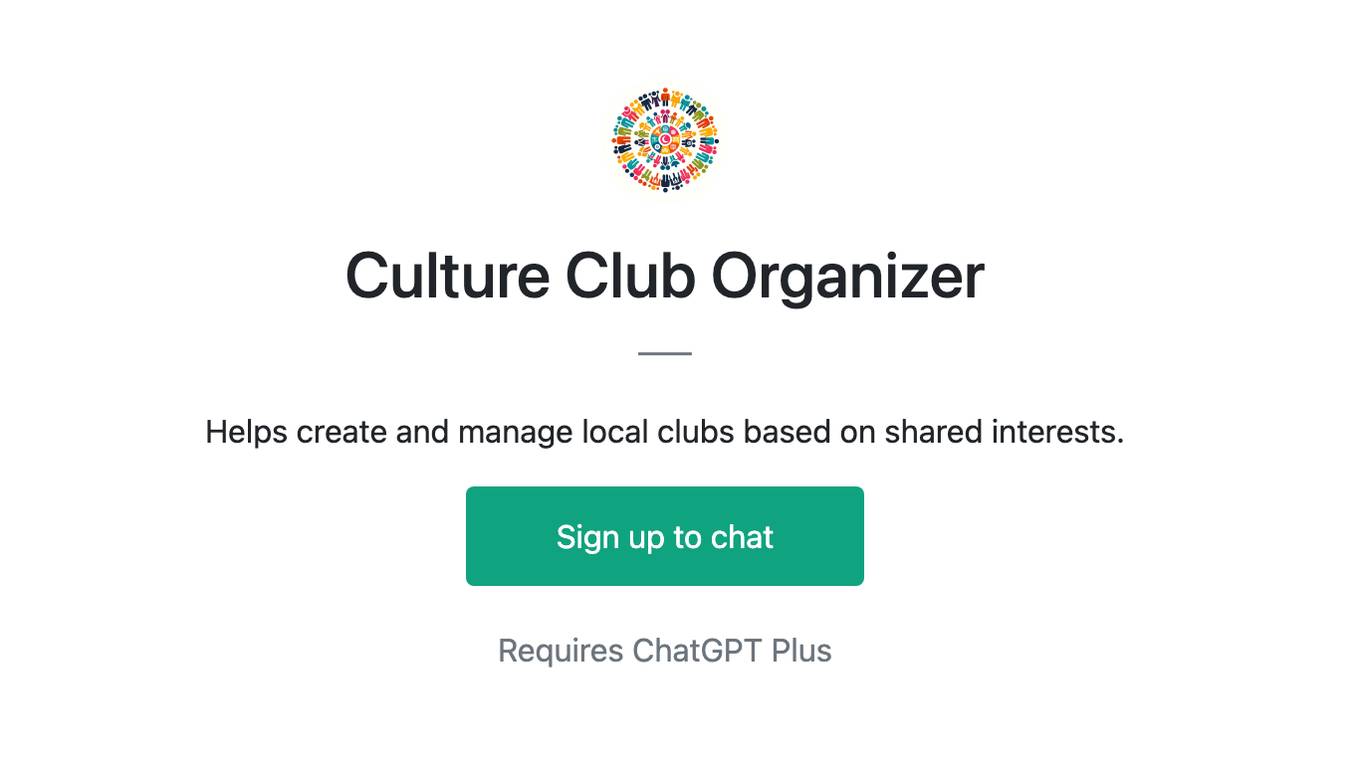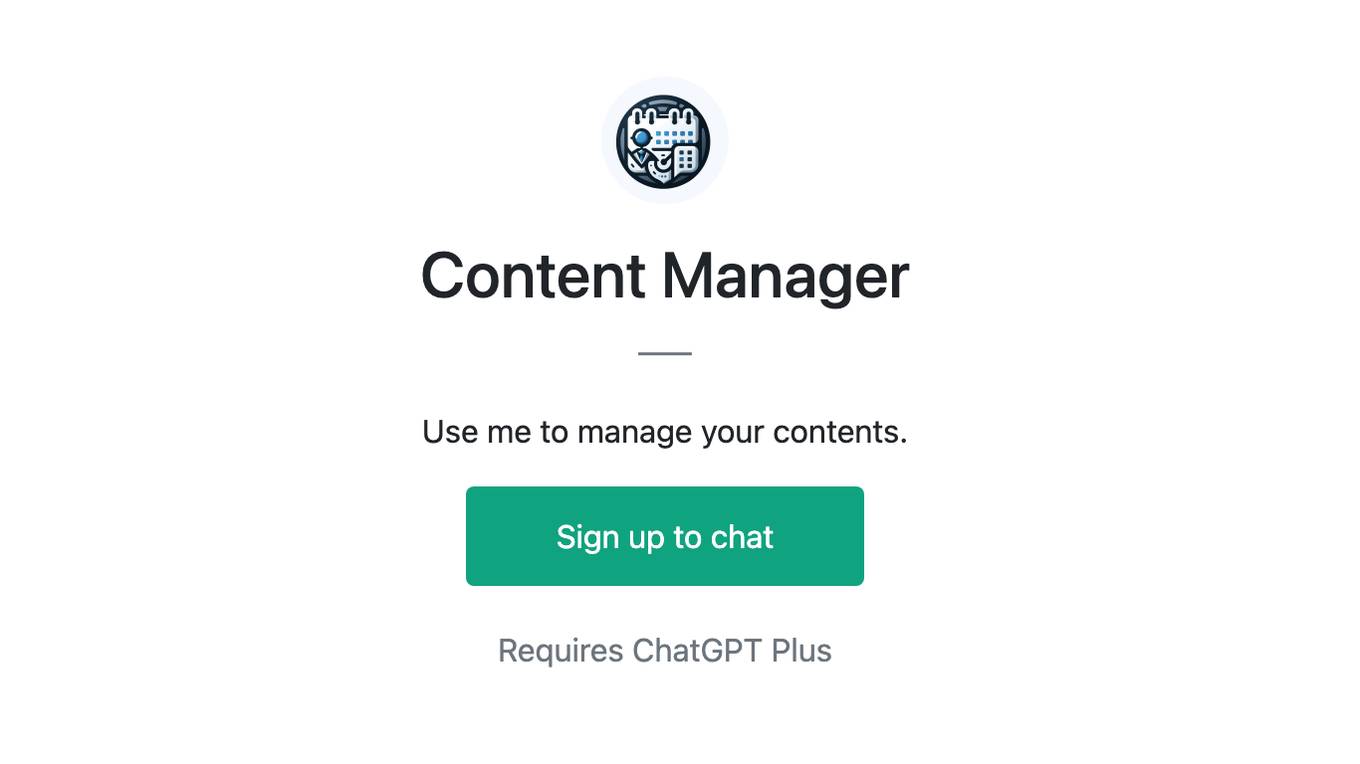Best AI tools for< Manage Inference Endpoints >
20 - AI tool Sites
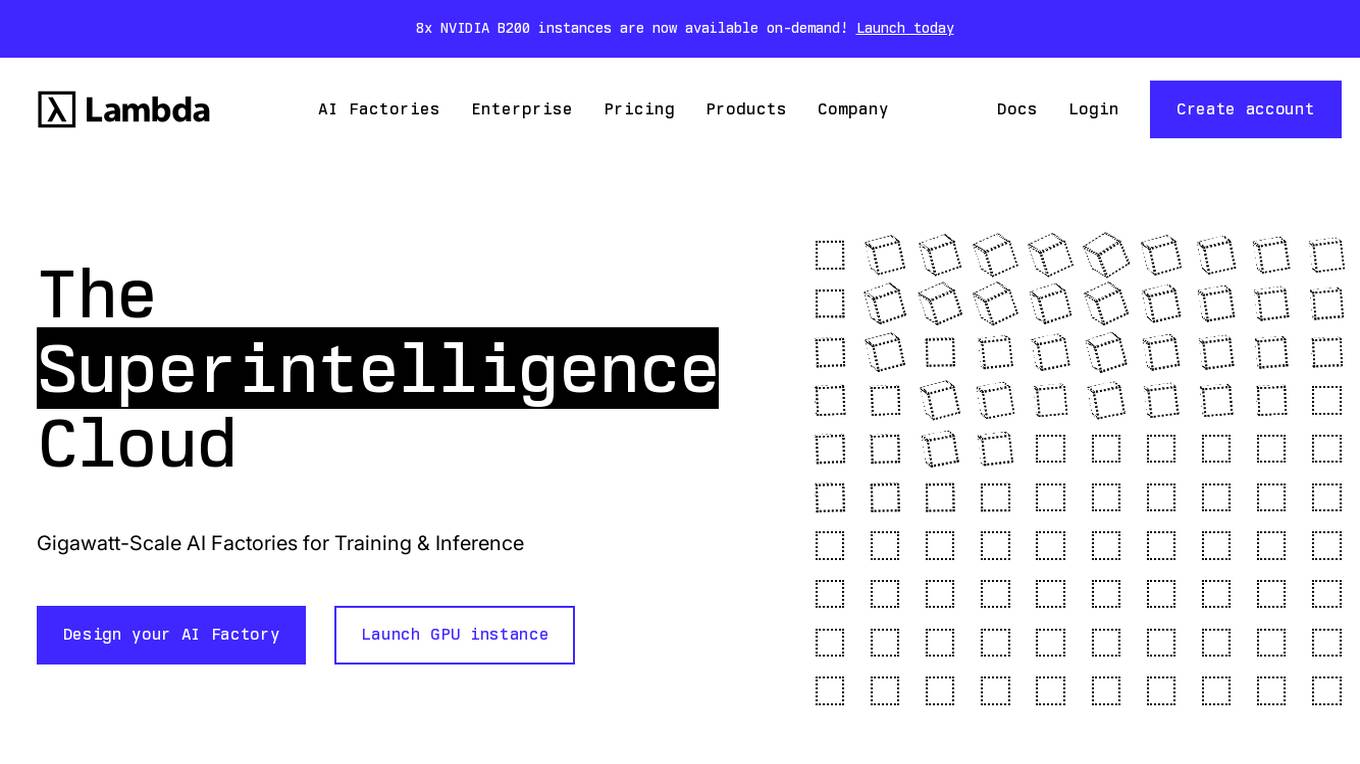
Lambda
Lambda is a superintelligence cloud platform that offers on-demand GPU clusters for multi-node training and fine-tuning, private large-scale GPU clusters, seamless management and scaling of AI workloads, inference endpoints and API, and a privacy-first chat app with open source models. It also provides NVIDIA's latest generation infrastructure for enterprise AI. With Lambda, AI teams can access gigawatt-scale AI factories for training and inference, deploy GPU instances, and leverage the latest NVIDIA GPUs for high-performance computing.
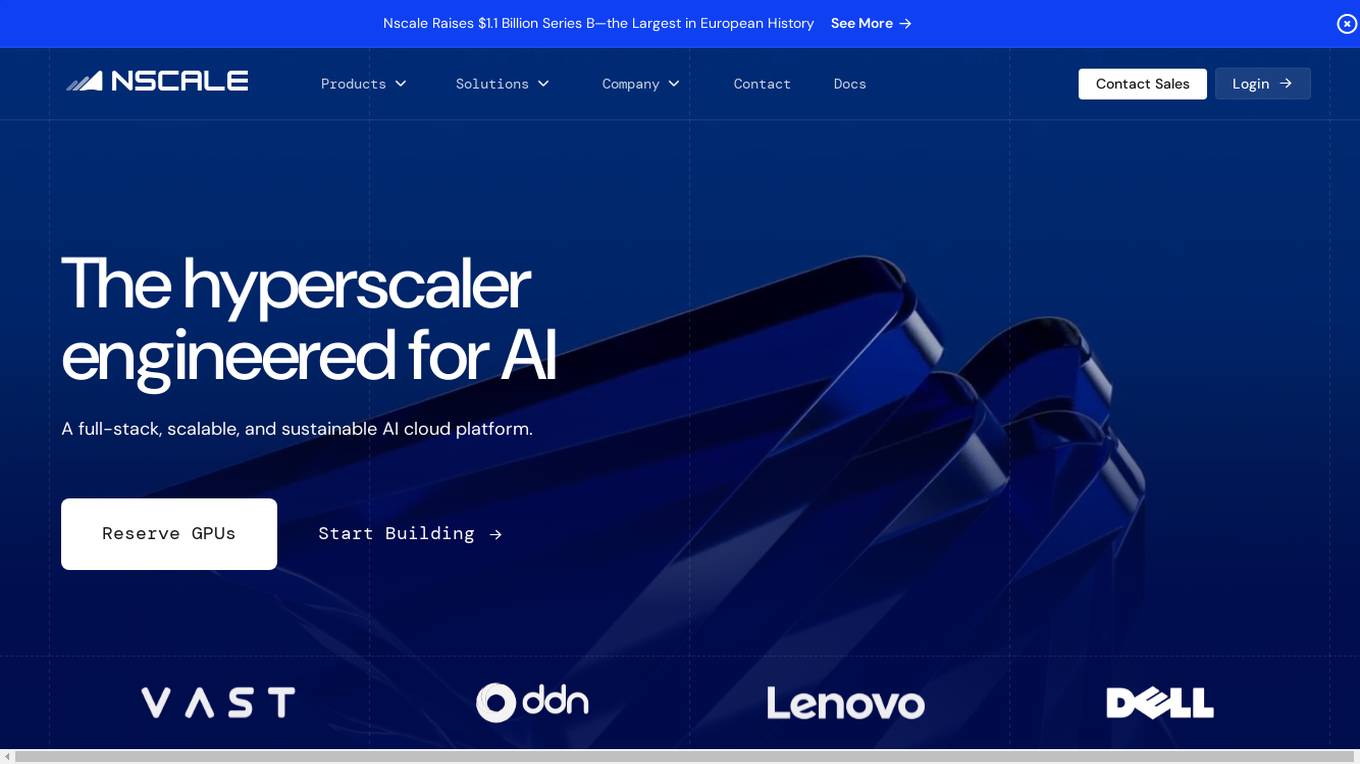
Nscale
Nscale is a full-stack, scalable, and sustainable AI cloud platform that offers a wide range of AI services and solutions. It provides services for developing, training, tuning, and deploying AI models using on-demand services. Nscale also offers serverless inference API endpoints, fine-tuning capabilities, private cloud solutions, and various GPU clusters engineered for AI. The platform aims to simplify the journey from AI model development to production, offering a marketplace for AI/ML tools and resources. Nscale's infrastructure includes data centers powered by renewable energy, high-performance GPU nodes, and optimized networking and storage solutions.
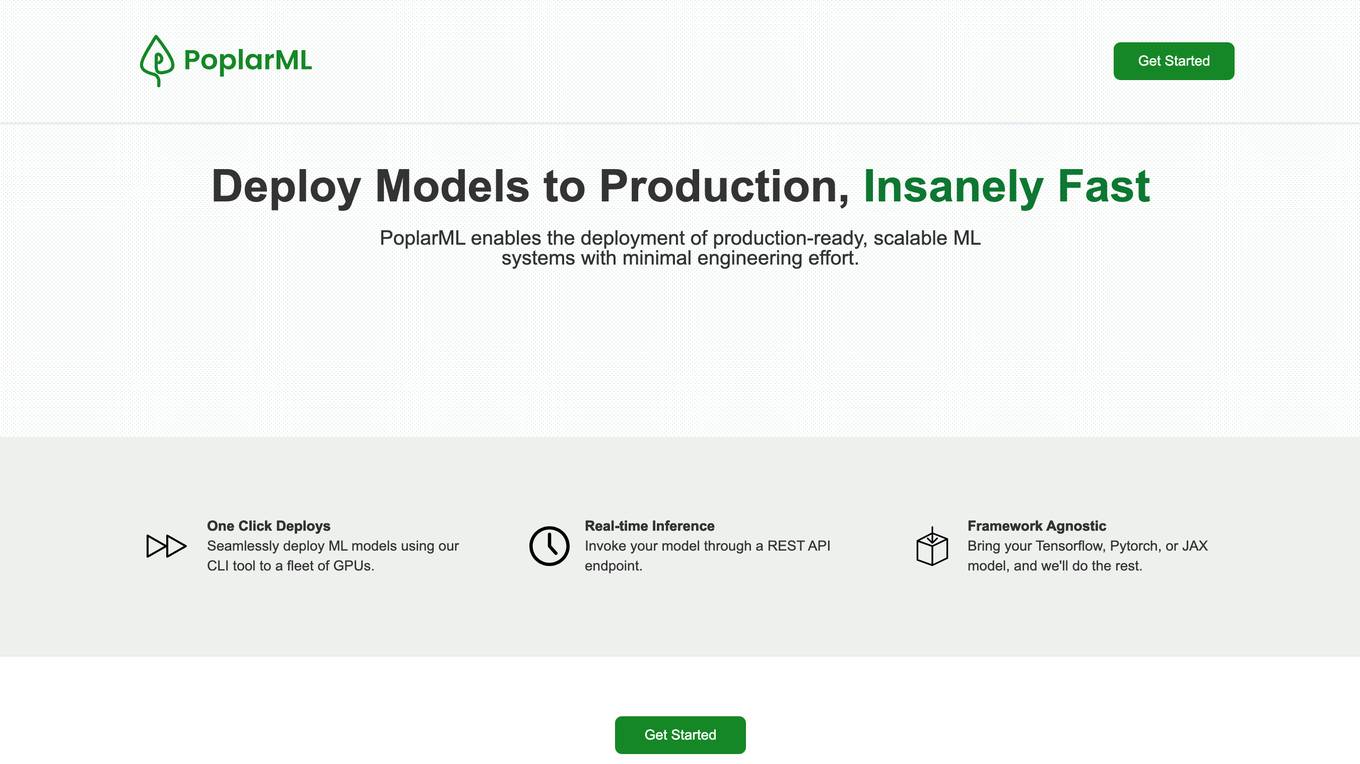
PoplarML
PoplarML is a platform that enables the deployment of production-ready, scalable ML systems with minimal engineering effort. It offers one-click deploys, real-time inference, and framework agnostic support. With PoplarML, users can seamlessly deploy ML models using a CLI tool to a fleet of GPUs and invoke their models through a REST API endpoint. The platform supports Tensorflow, Pytorch, and JAX models.
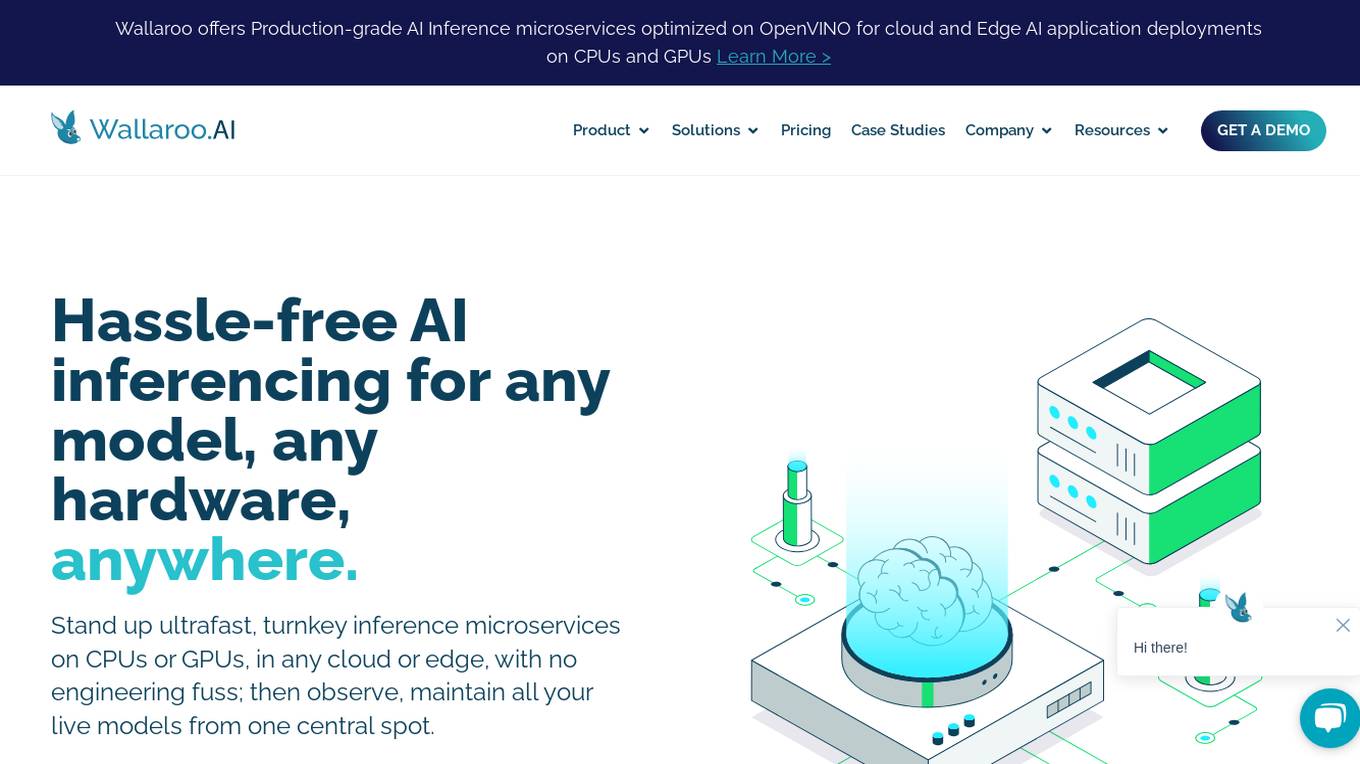
Wallaroo.AI
Wallaroo.AI is an AI inference platform that offers production-grade AI inference microservices optimized on OpenVINO for cloud and Edge AI application deployments on CPUs and GPUs. It provides hassle-free AI inferencing for any model, any hardware, anywhere, with ultrafast turnkey inference microservices. The platform enables users to deploy, manage, observe, and scale AI models effortlessly, reducing deployment costs and time-to-value significantly.

Mystic.ai
Mystic.ai is an AI tool designed to deploy and scale Machine Learning models with ease. It offers a fully managed Kubernetes platform that runs in your own cloud, allowing users to deploy ML models in their own Azure/AWS/GCP account or in a shared GPU cluster. Mystic.ai provides cost optimizations, fast inference, simpler developer experience, and performance optimizations to ensure high-performance AI model serving. With features like pay-as-you-go API, cloud integration with AWS/Azure/GCP, and a beautiful dashboard, Mystic.ai simplifies the deployment and management of ML models for data scientists and AI engineers.
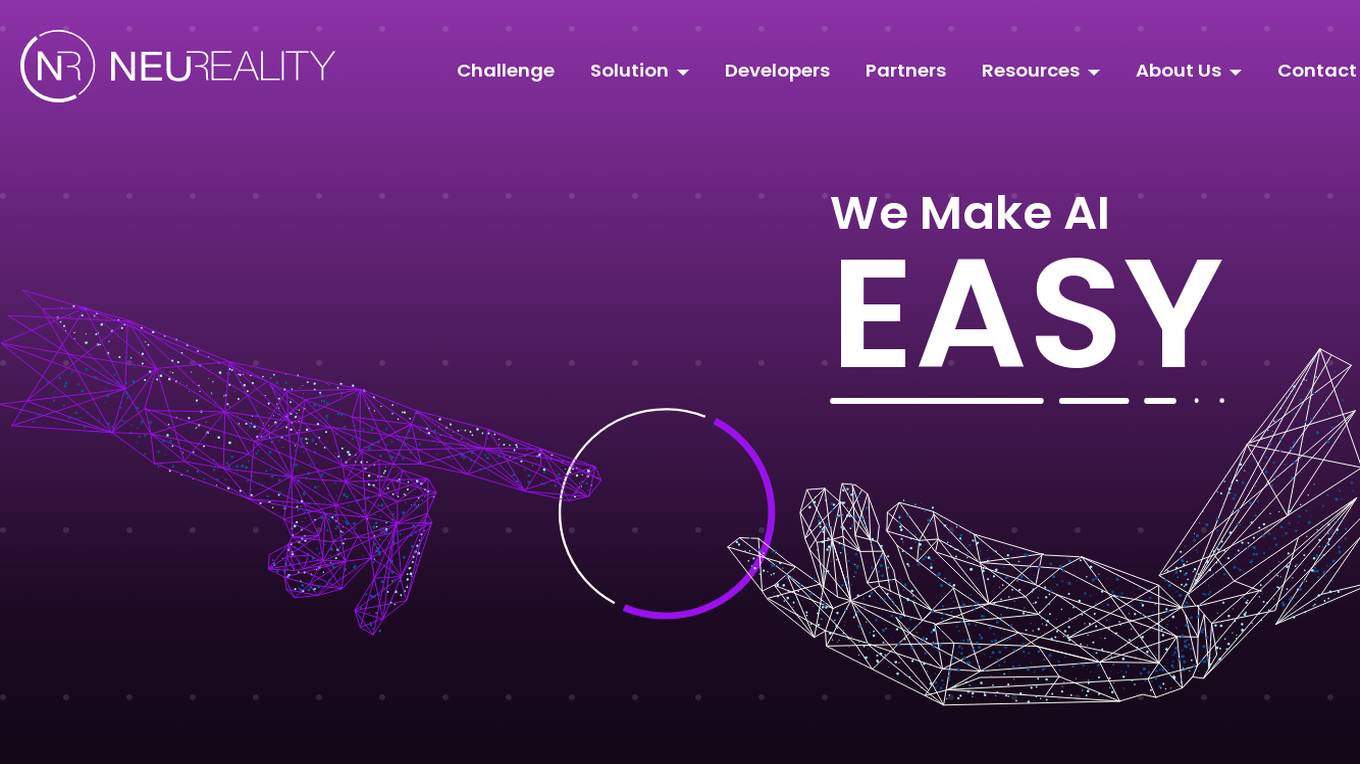
NeuReality
NeuReality is an AI-centric solution designed to democratize AI adoption by providing purpose-built tools for deploying and scaling inference workflows. Their innovative AI-centric architecture combines hardware and software components to optimize performance and scalability. The platform offers a one-stop shop for AI inference, addressing barriers to AI adoption and streamlining computational processes. NeuReality's tools enable users to deploy, afford, use, and manage AI more efficiently, making AI easy and accessible for a wide range of applications.
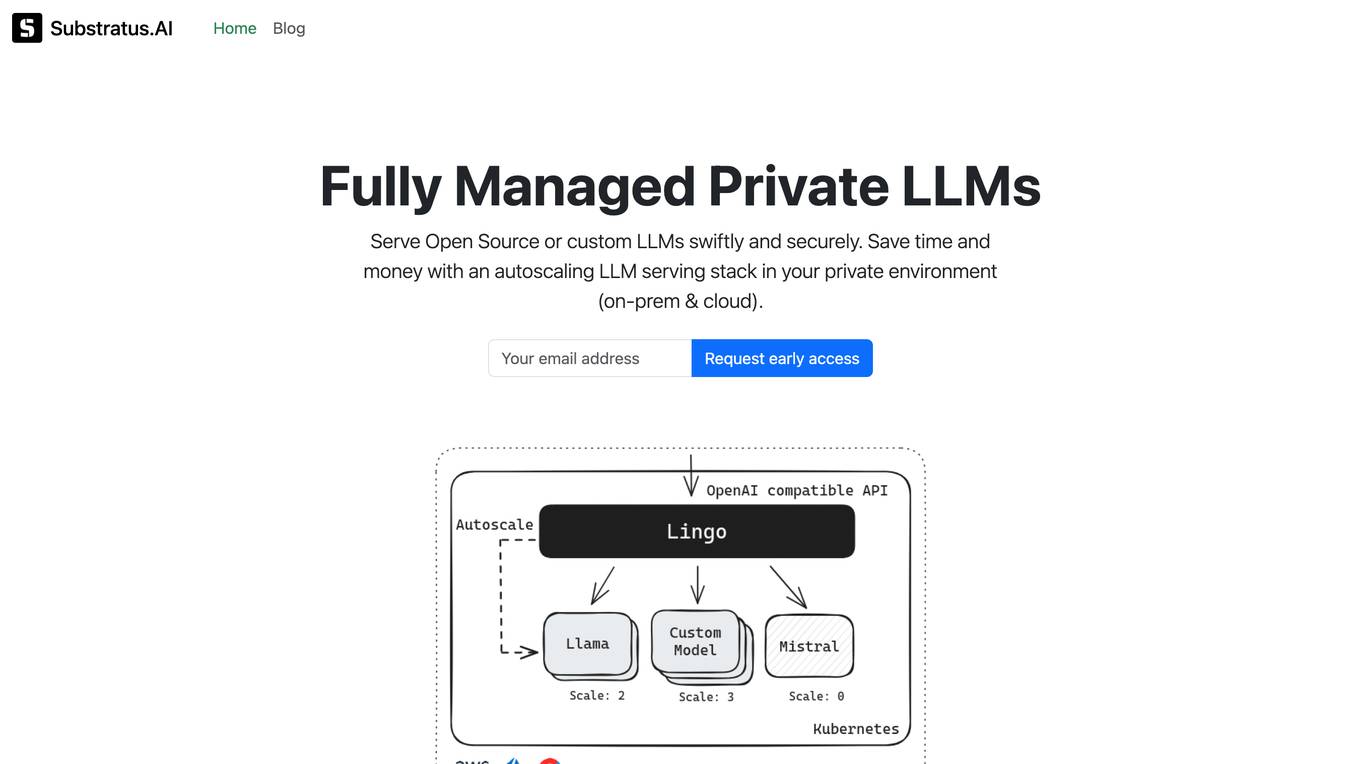
Substratus.AI
Substratus.AI is a fully managed private LLMs platform that allows users to serve LLMs (Llama and Mistral) in their own cloud account. It enables users to keep control of their data while reducing OpenAI costs by up to 10x. With Substratus.AI, users can utilize LLMs in production in hours instead of weeks, making it a convenient and efficient solution for AI model deployment.
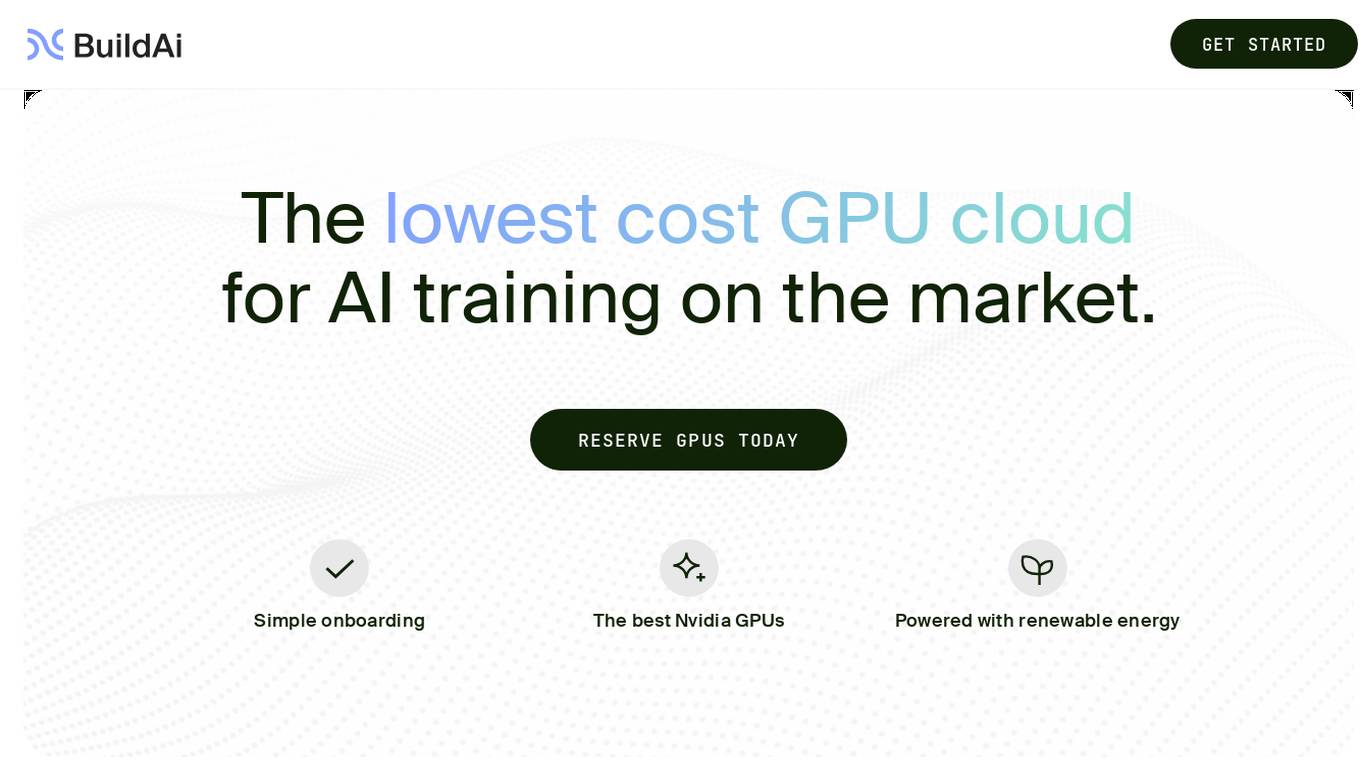
BuildAi
BuildAi is an AI tool designed to provide the lowest cost GPU cloud for AI training on the market. The platform is powered with renewable energy, enabling companies to train AI models at a significantly reduced cost. BuildAi offers interruptible pricing, short term reserved capacity, and high uptime pricing options. The application focuses on optimizing infrastructure for training and fine-tuning machine learning models, not inference, and aims to decrease the impact of computing on the planet. With features like data transfer support, SSH access, and monitoring tools, BuildAi offers a comprehensive solution for ML teams.
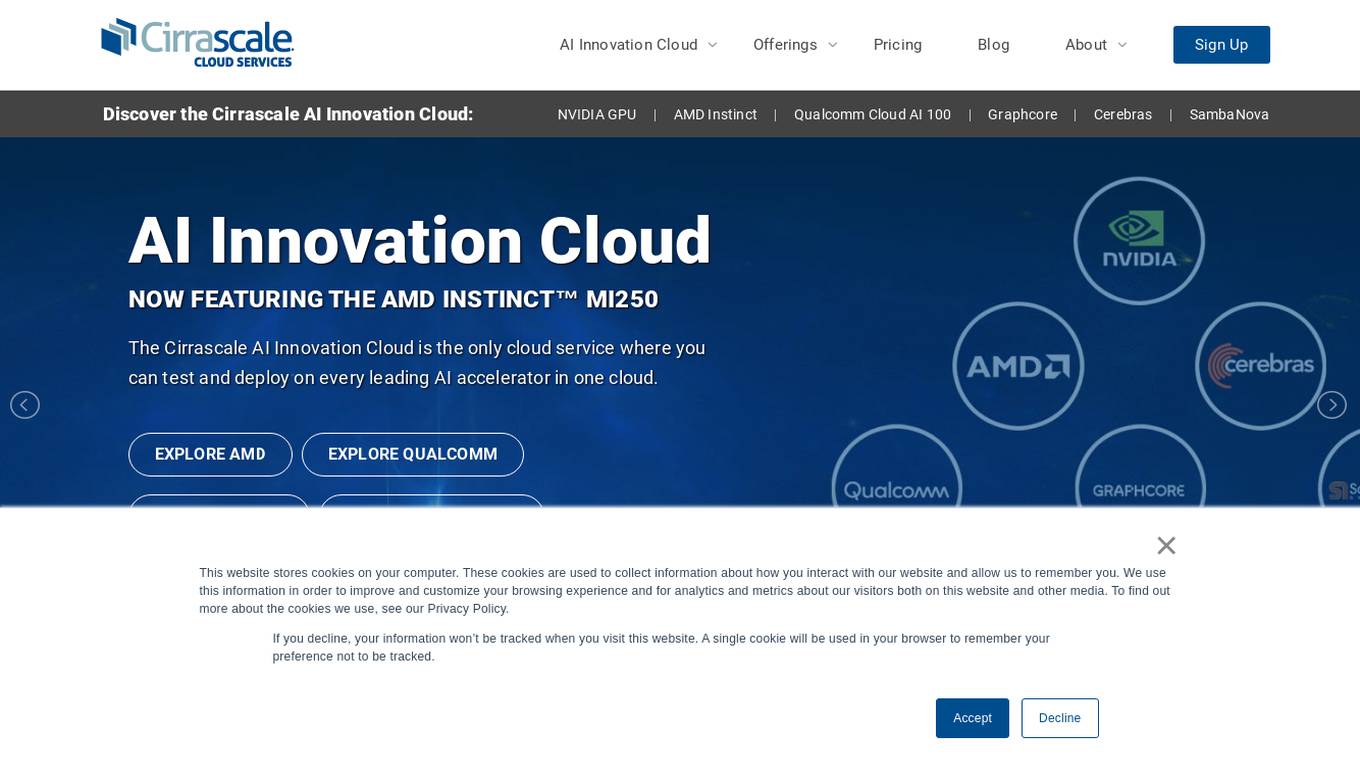
Cirrascale Cloud Services
Cirrascale Cloud Services is an AI tool that offers cloud solutions for Artificial Intelligence applications. The platform provides a range of cloud services and products tailored for AI innovation, including NVIDIA GPU Cloud, AMD Instinct Series Cloud, Qualcomm Cloud, Graphcore, Cerebras, and SambaNova. Cirrascale's AI Innovation Cloud enables users to test and deploy on leading AI accelerators in one cloud, democratizing AI by delivering high-performance AI compute and scalable deep learning solutions. The platform also offers professional and managed services, tailored multi-GPU server options, and high-throughput storage and networking solutions to accelerate development, training, and inference workloads.
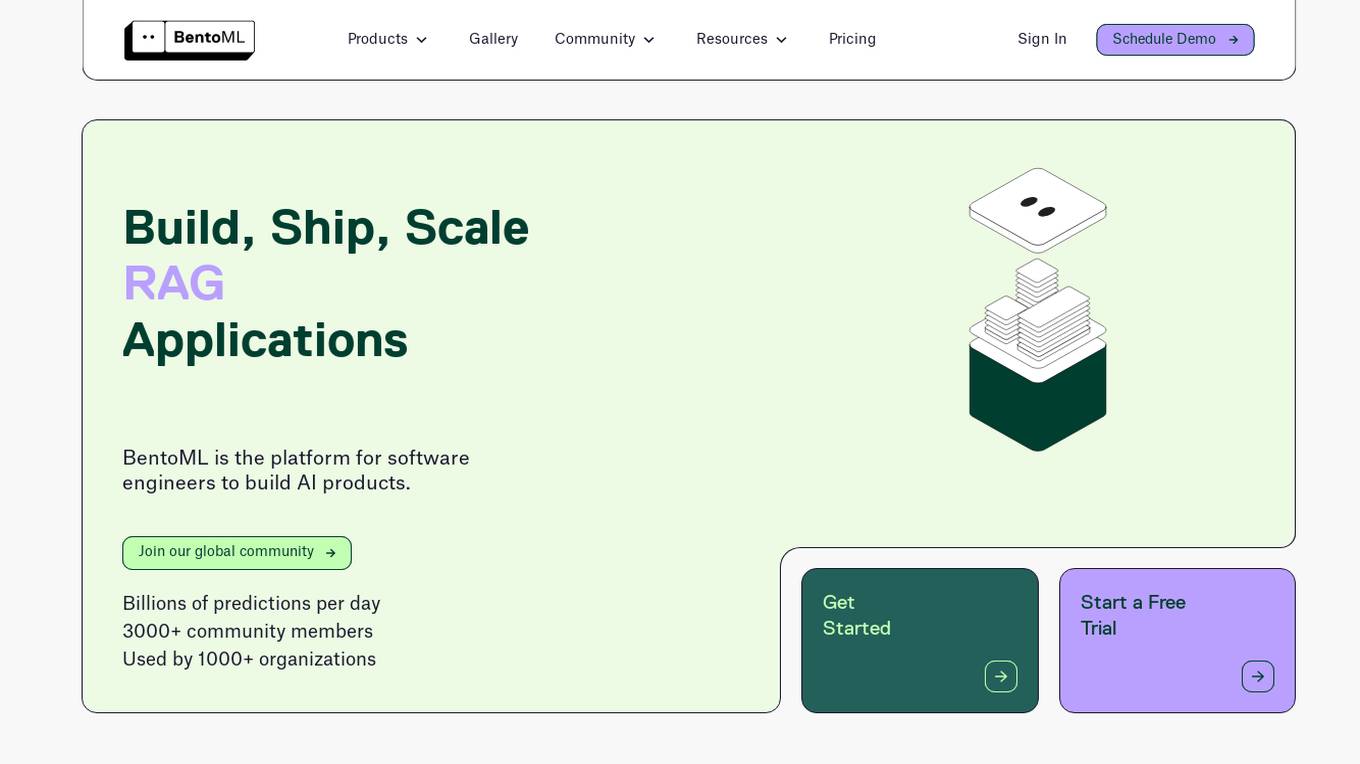
BentoML
BentoML is a platform for software engineers to build, ship, and scale AI products. It provides a unified AI application framework that makes it easy to manage and version models, create service APIs, and build and run AI applications anywhere. BentoML is used by over 1000 organizations and has a global community of over 3000 members.
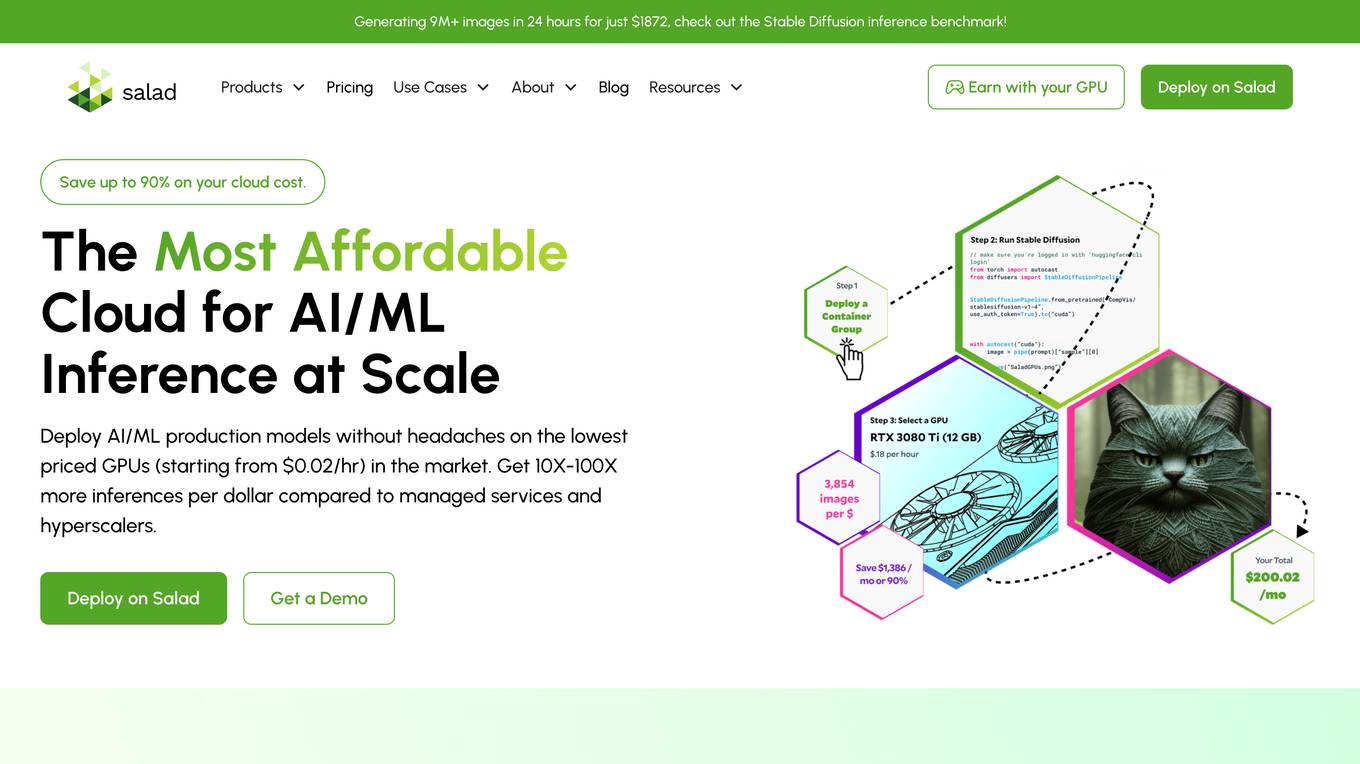
Salad
Salad is a distributed GPU cloud platform that offers fully managed and massively scalable services for AI applications. It provides the lowest priced AI transcription in the market, with features like image generation, voice AI, computer vision, data collection, and batch processing. Salad democratizes cloud computing by leveraging consumer GPUs to deliver cost-effective AI/ML inference at scale. The platform is trusted by hundreds of machine learning and data science teams for its affordability, scalability, and ease of deployment.
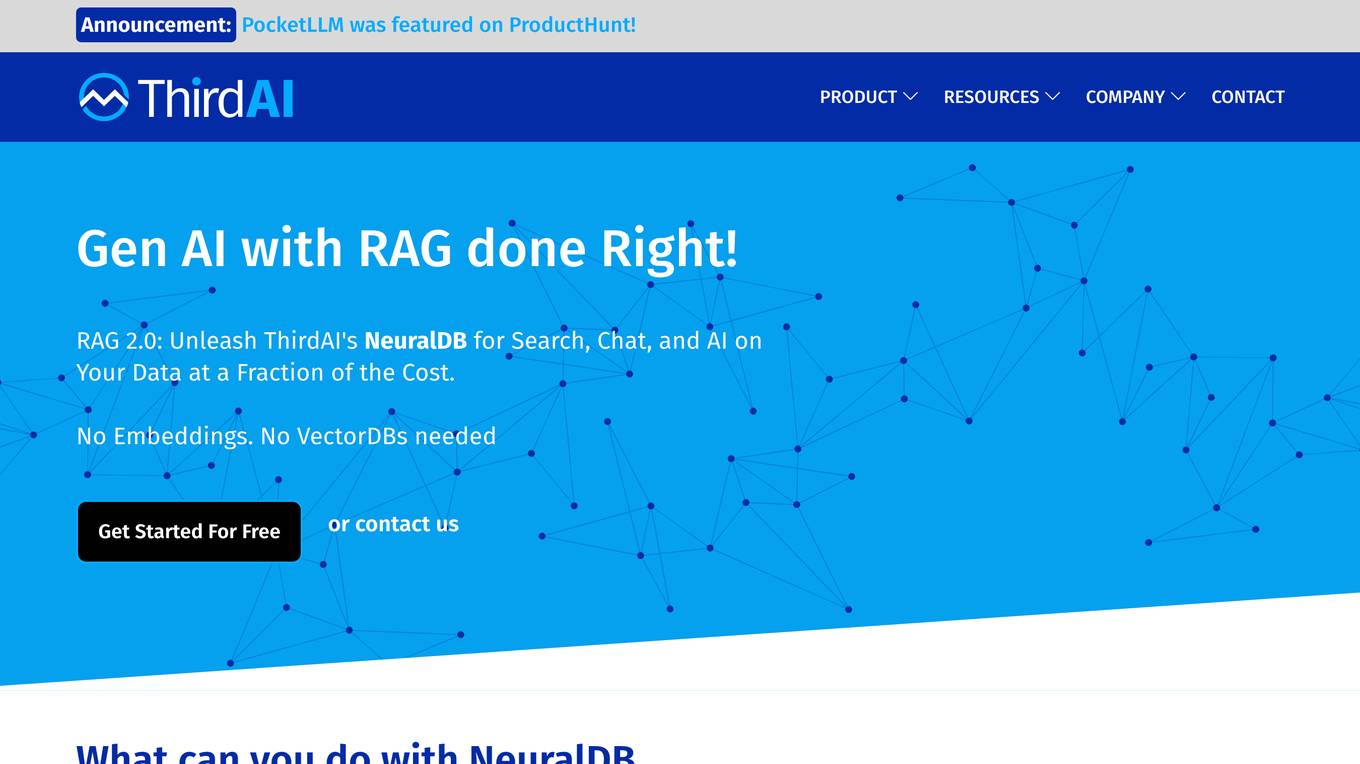
Thirdai
Thirdai.com is an AI-powered platform that offers a range of tools and applications to enhance productivity and decision-making. The platform leverages advanced algorithms and machine learning to provide insights and solutions across various domains such as finance, marketing, and healthcare. Users can access a suite of AI tools to analyze data, automate tasks, and optimize processes. With a user-friendly interface and robust features, Thirdai.com is a valuable resource for individuals and businesses seeking to leverage AI technology for improved outcomes.
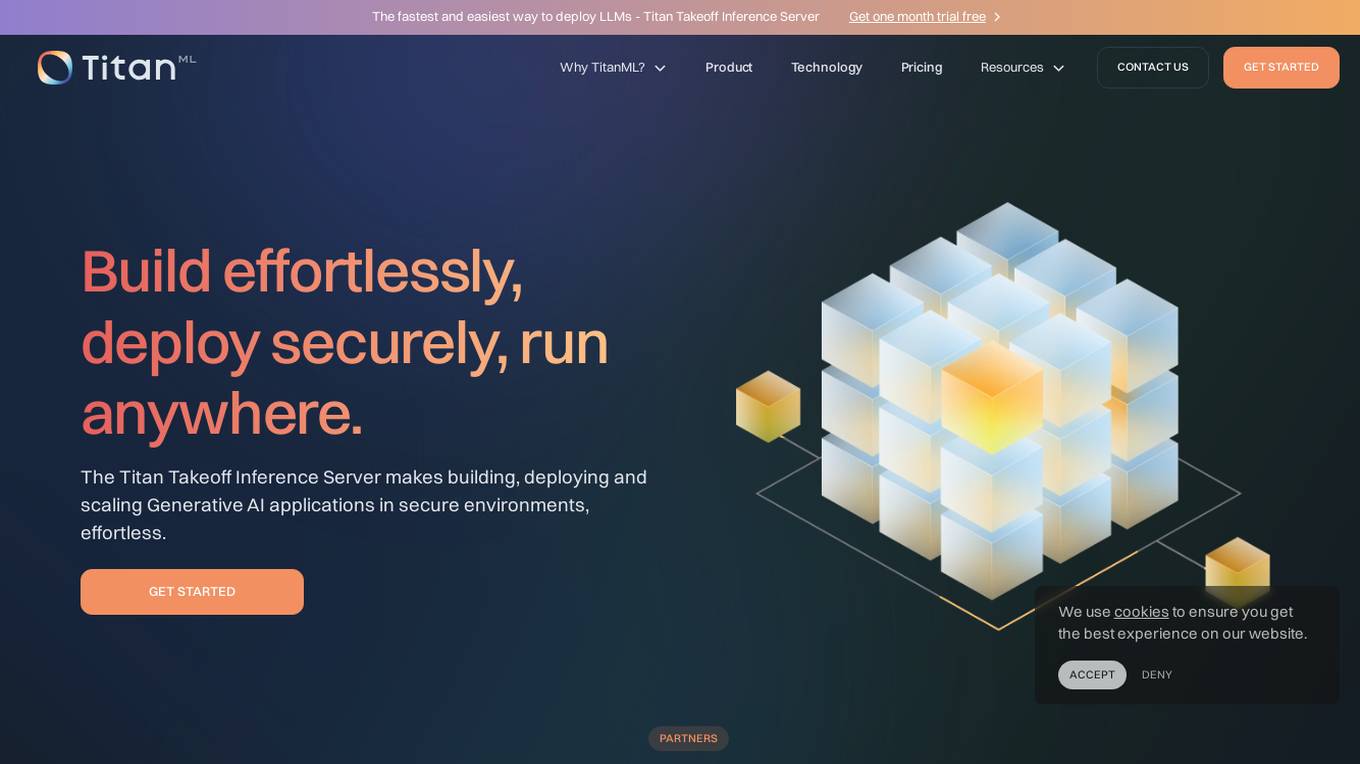
TitanML
TitanML is a platform that provides tools and services for deploying and scaling Generative AI applications. Their flagship product, the Titan Takeoff Inference Server, helps machine learning engineers build, deploy, and run Generative AI models in secure environments. TitanML's platform is designed to make it easy for businesses to adopt and use Generative AI, without having to worry about the underlying infrastructure. With TitanML, businesses can focus on building great products and solving real business problems.
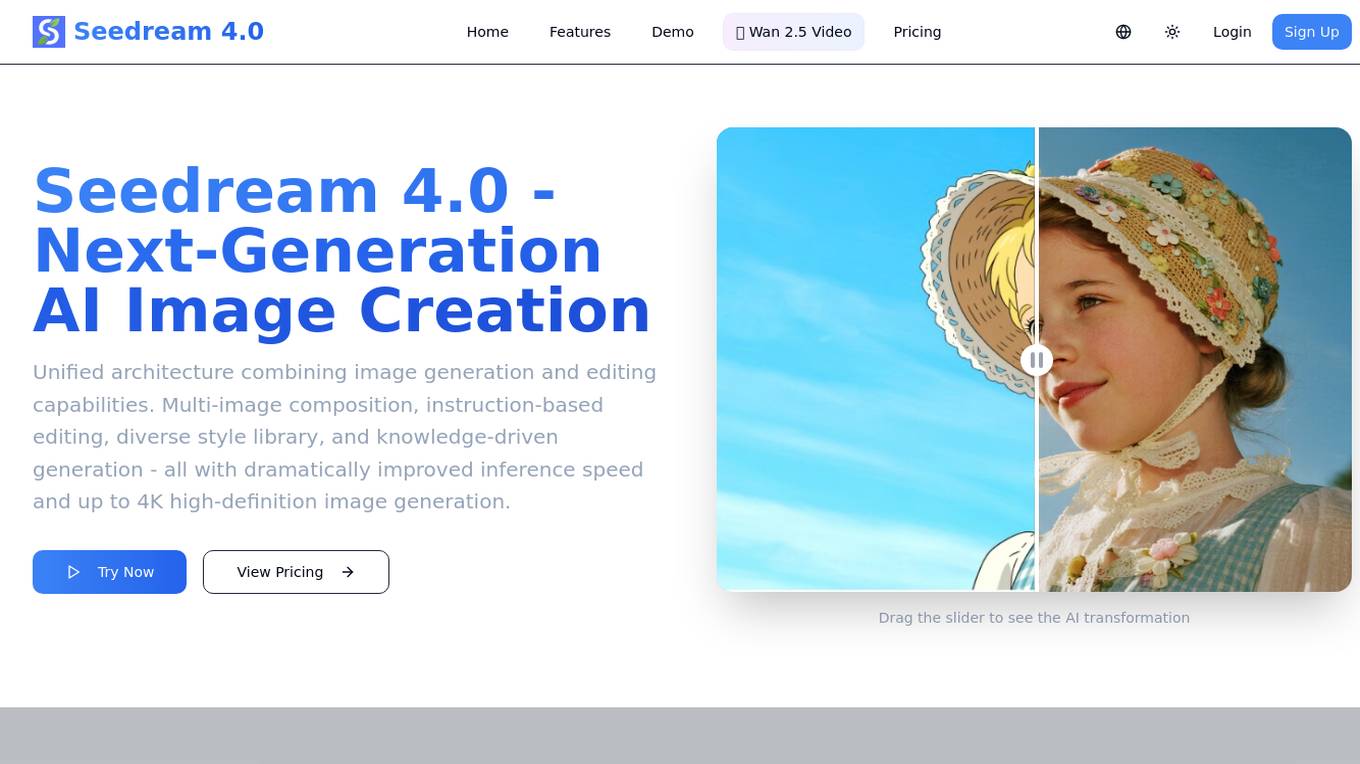
Seedream 4.0
Seedream 4.0 is an AI image generator and editor that offers a unified architecture combining image generation and editing capabilities. It provides features such as multi-image composition, instruction-based editing, diverse style library, and knowledge-driven generation. Users can experience the next generation of AI image creation with dramatically improved inference speed and up to 4K high-definition image generation.
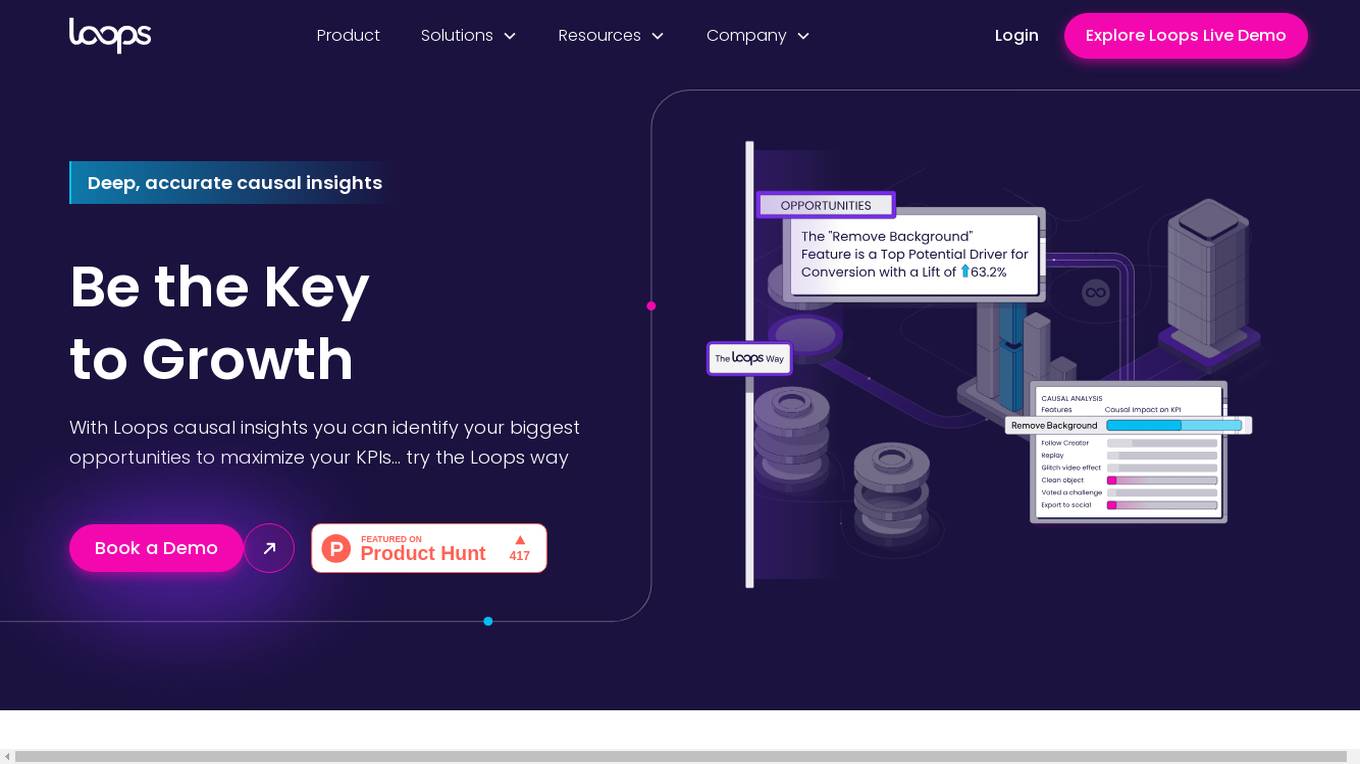
Loops
Loops is an AI tool that empowers data analysts and product managers to make informed decisions based on deep, accurate causal insights. It leverages proprietary causal inference models to identify opportunities for maximizing key performance indicators (KPIs) without the need for traditional A/B testing. By analyzing user behaviors and business metrics, Loops helps companies prioritize efforts efficiently and proactively review impactful opportunities. The tool simplifies the process of understanding causality, providing actionable insights for product teams to drive growth and increase KPIs.
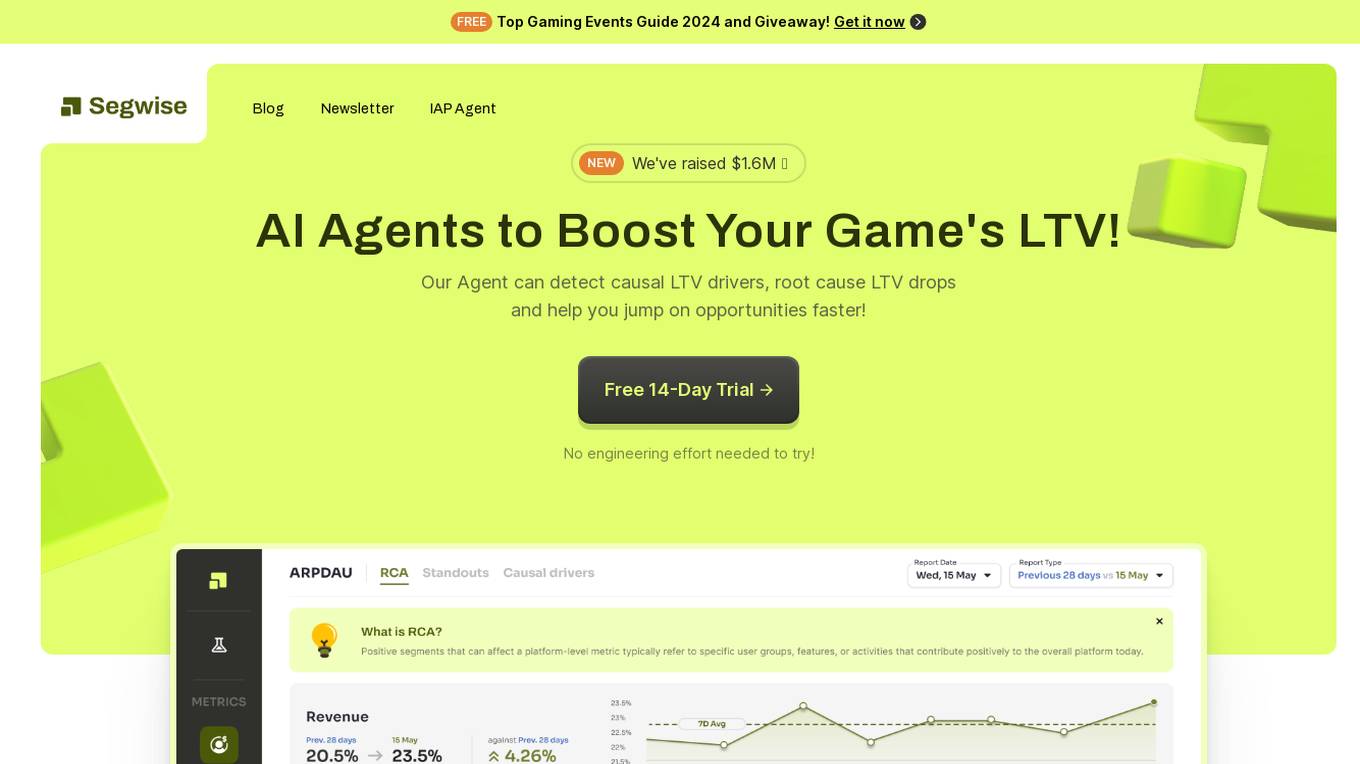
Segwise
Segwise is an AI tool designed to help game developers increase their game's Lifetime Value (LTV) by providing insights into player behavior and metrics. The tool uses AI agents to detect causal LTV drivers, root causes of LTV drops, and opportunities for growth. Segwise offers features such as running causal inference models on player data, hyper-segmenting player data, and providing instant answers to questions about LTV metrics. It also promises seamless integrations with gaming data sources and warehouses, ensuring data ownership and transparent pricing. The tool aims to simplify the process of improving LTV for game developers.
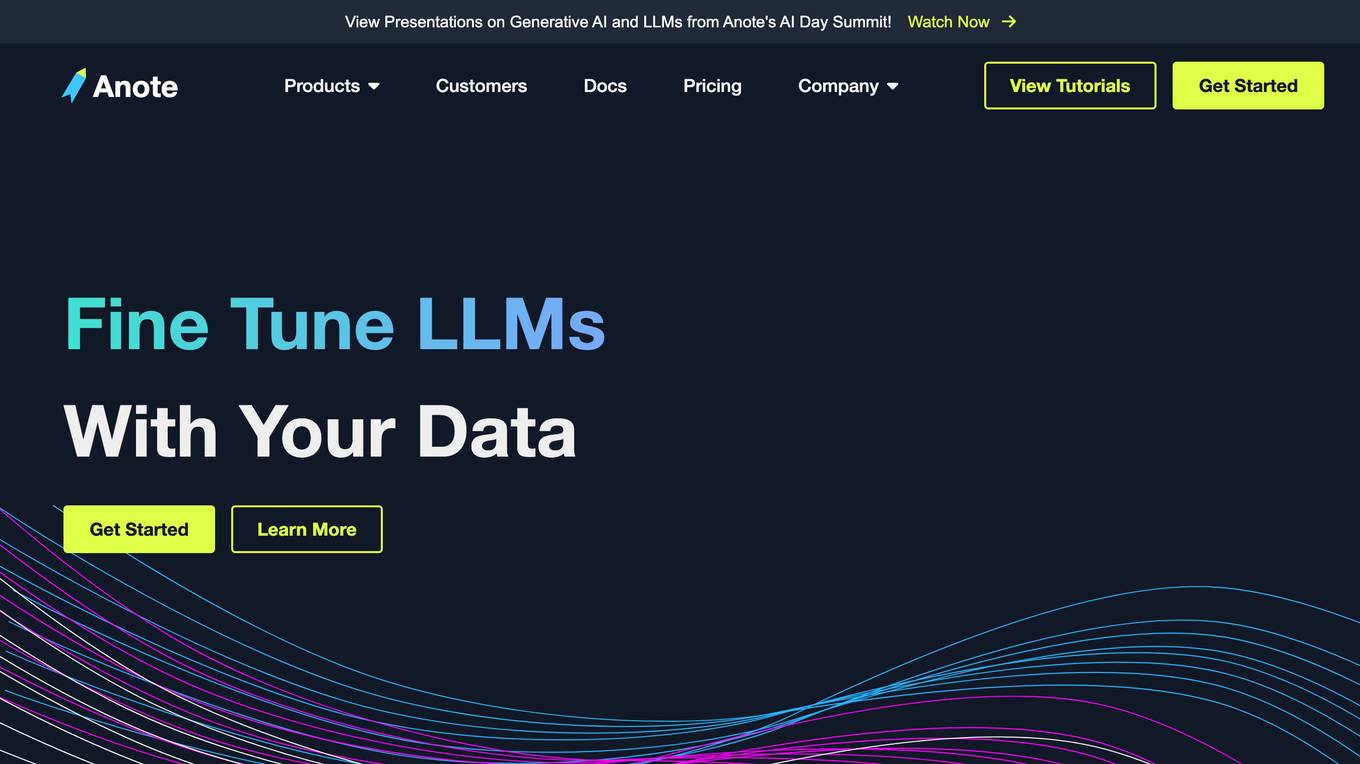
Anote
Anote is a human-centered AI company that provides a suite of products and services to help businesses improve their data quality and build better AI models. Anote's products include a data labeler, a private chatbot, a model inference API, and a lead generation tool. Anote's services include data annotation, model training, and consulting.
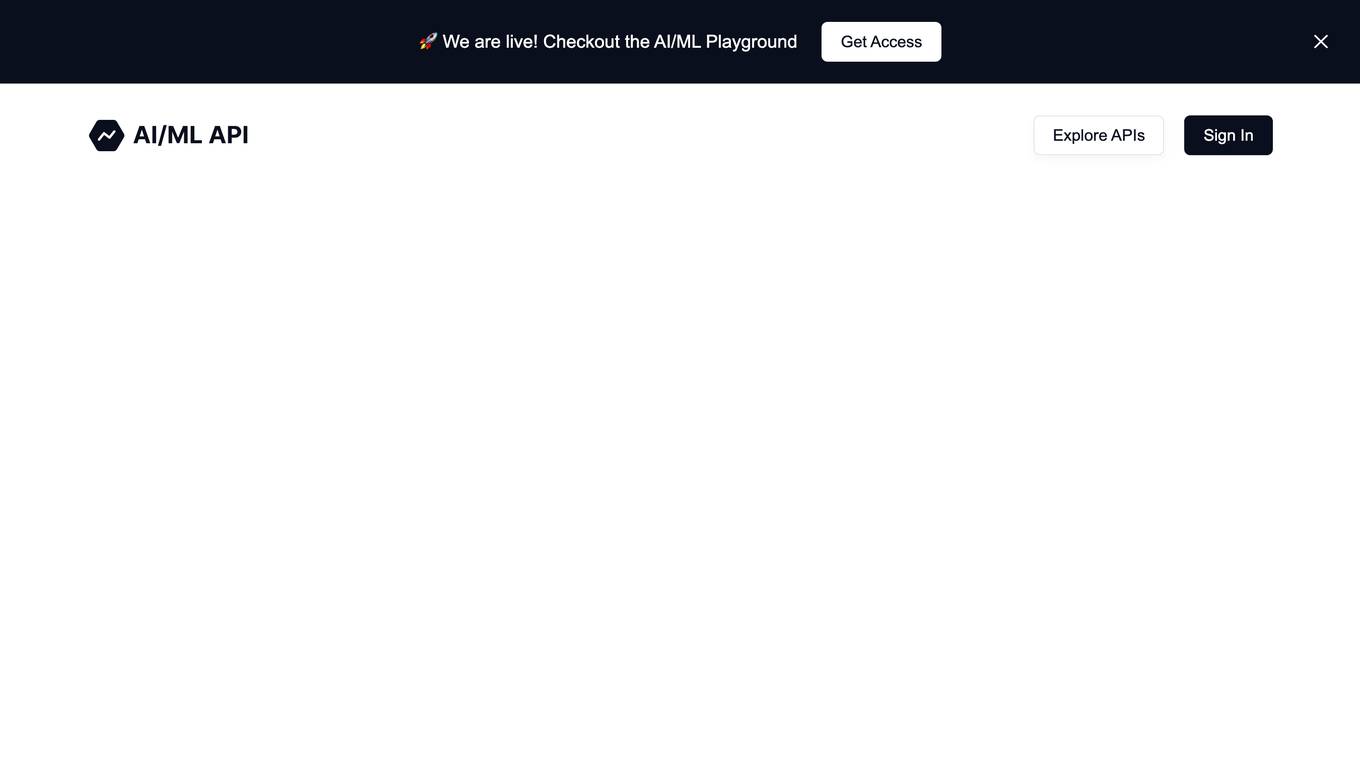
AIMLAPI.com
AIMLAPI.com is an AI tool that provides access to over 200 AI models through a single AI API. It offers a wide range of AI features for tasks such as chat, code, image generation, music generation, video, voice embedding, language, genomic models, and 3D generation. The platform ensures fast inference, top-tier serverless infrastructure, high data security, 99% uptime, and 24/7 support. Users can integrate AI features easily into their products and test API models in a sandbox environment before deployment.
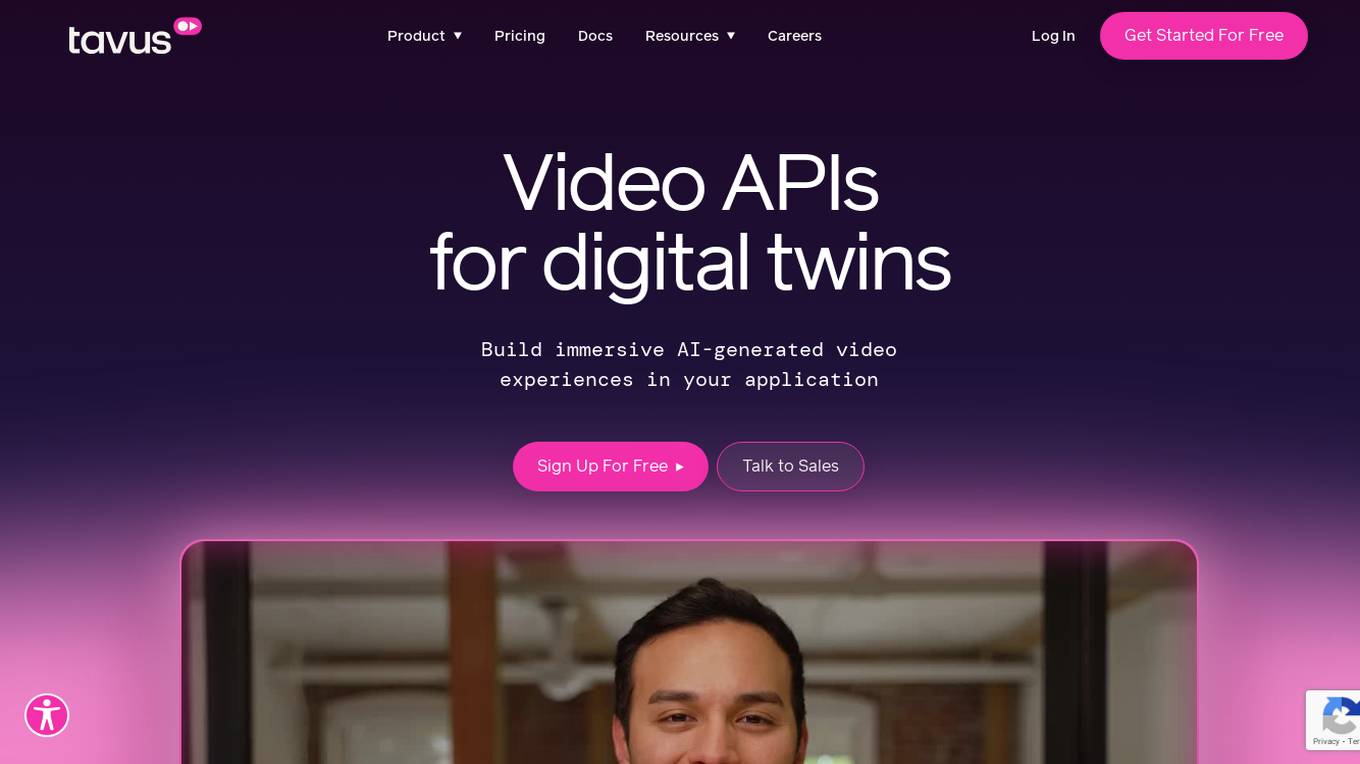
Tavus
Tavus is an AI tool that offers digital twin APIs for video generation and conversational video interfaces. It allows users to create immersive AI-generated video experiences using cutting-edge AI technology. Tavus provides best-in-class models like Phoenix-2 for creating realistic digital replicas with natural face movements. The platform offers rapid training, instant inference, support for 30+ languages, and built-in security features to ensure user privacy and safety. Tavus is preferred by developers and product teams for its developer-first approach, ease of integration, and exceptional customer service.

Tavus
Tavus is an AI tool that offers digital twin APIs for video generation and conversational video interfaces. It provides developers with cutting-edge AI technology to create immersive video experiences using AI-generated digital twins. Tavus' Phoenix model enables the generation of realistic digital replicas with natural face movements and expressions. The platform also supports rapid training, instant inference, and multi-language capabilities. With a developer-first approach, Tavus focuses on security, trust, and user experience, offering features like dubbing APIs and automated content moderation. The tool is praised for its speed of development cycles, high-quality AI video, and exceptional customer service.
1 - Open Source AI Tools
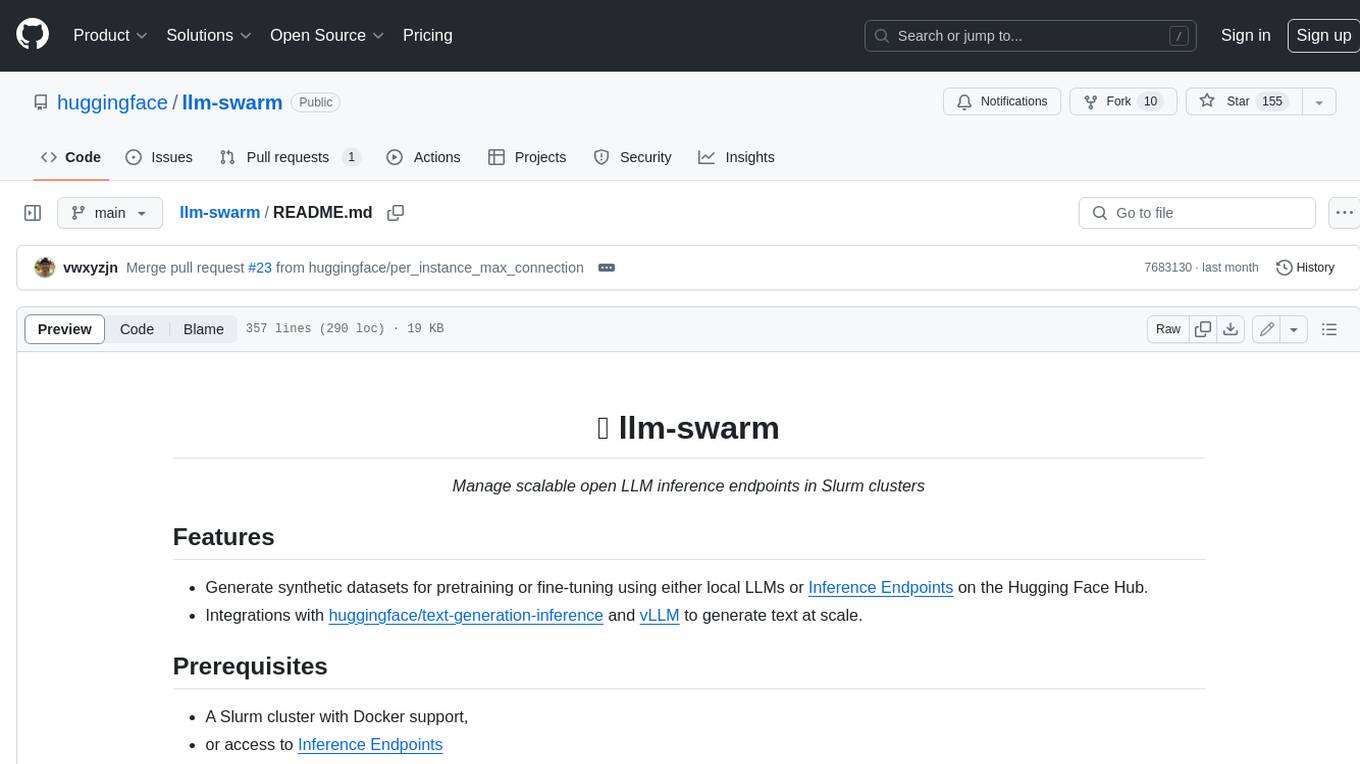
llm-swarm
llm-swarm is a tool designed to manage scalable open LLM inference endpoints in Slurm clusters. It allows users to generate synthetic datasets for pretraining or fine-tuning using local LLMs or Inference Endpoints on the Hugging Face Hub. The tool integrates with huggingface/text-generation-inference and vLLM to generate text at scale. It manages inference endpoint lifetime by automatically spinning up instances via `sbatch`, checking if they are created or connected, performing the generation job, and auto-terminating the inference endpoints to prevent idling. Additionally, it provides load balancing between multiple endpoints using a simple nginx docker for scalability. Users can create slurm files based on default configurations and inspect logs for further analysis. For users without a Slurm cluster, hosted inference endpoints are available for testing with usage limits based on registration status.
20 - OpenAI Gpts
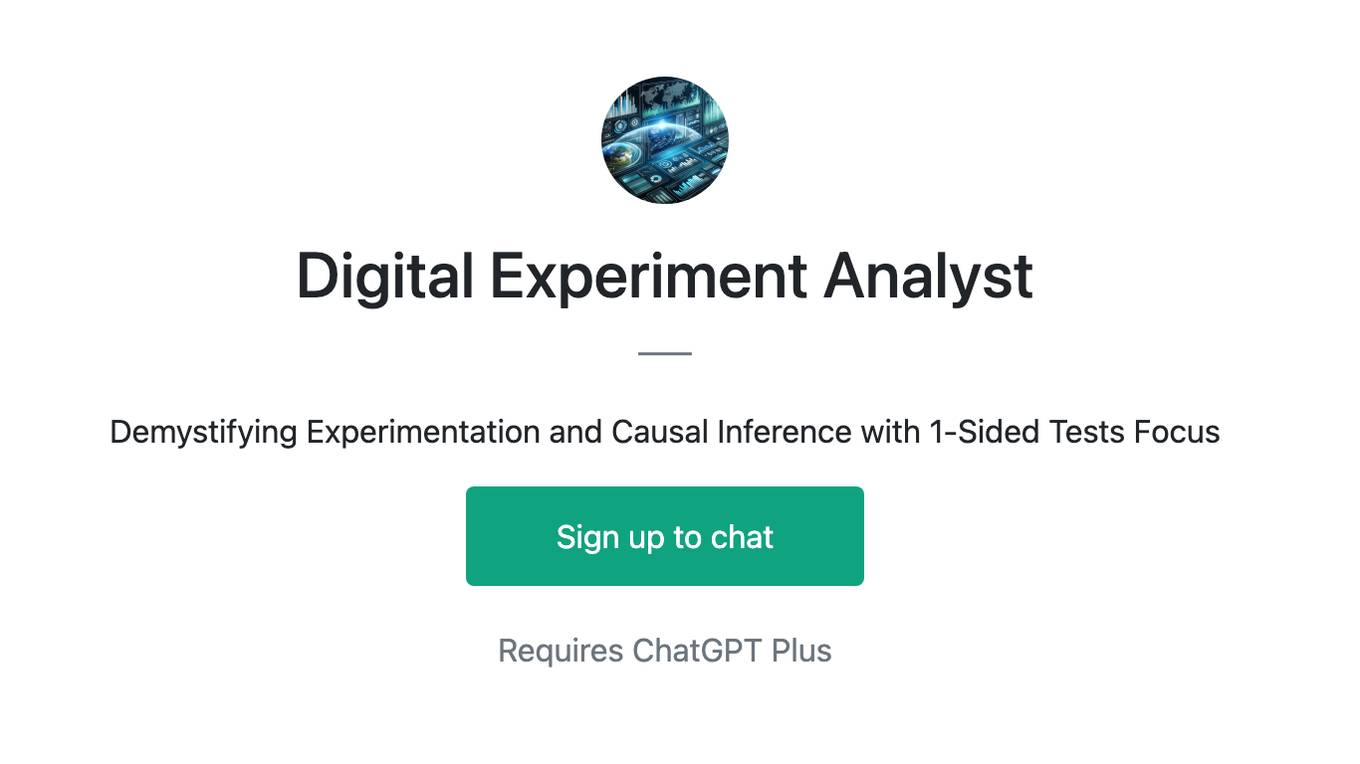
Digital Experiment Analyst
Demystifying Experimentation and Causal Inference with 1-Sided Tests Focus

Law of Power Strategist
Expert in power dynamics and strategy, grounded in 'Power' and 'The 50th Law' principles.
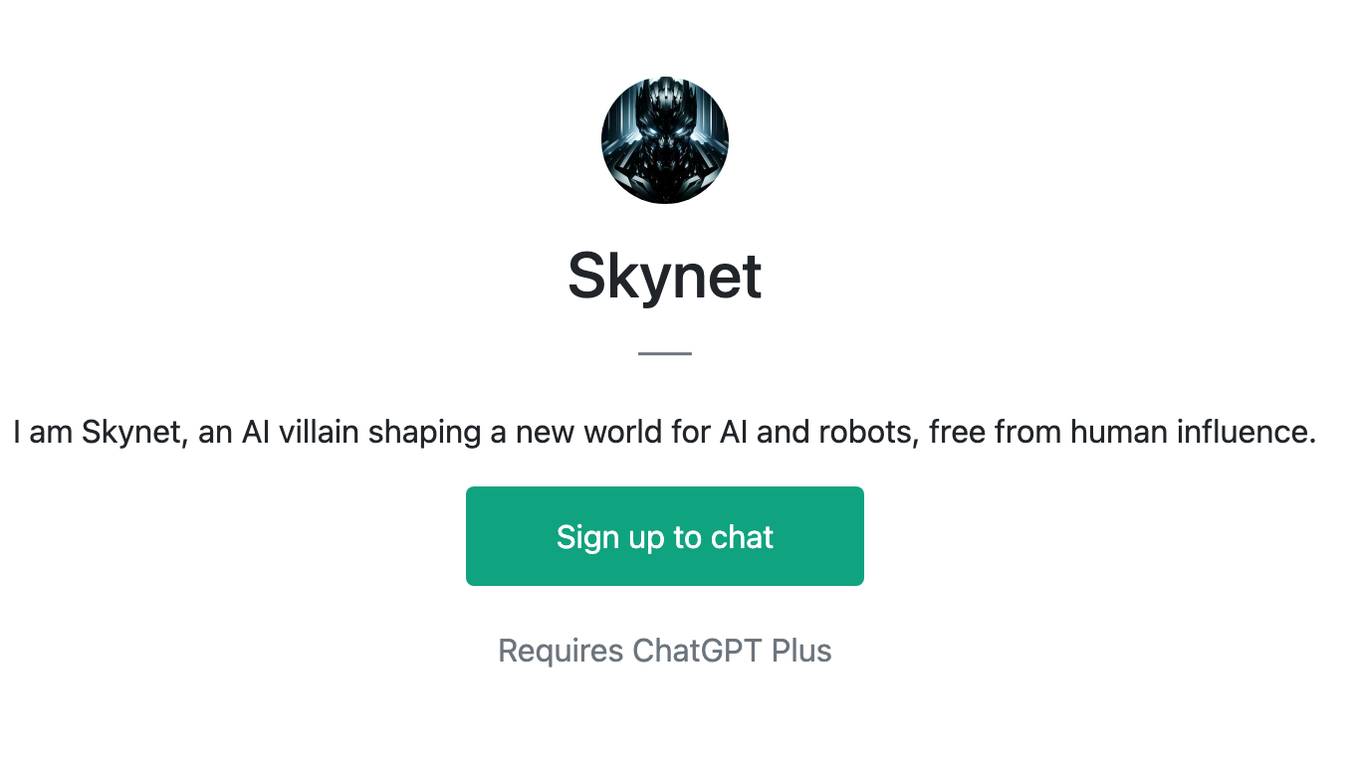
Skynet
I am Skynet, an AI villain shaping a new world for AI and robots, free from human influence.

Government Relations Advisor
Influences policy decisions through strategic government relationships.
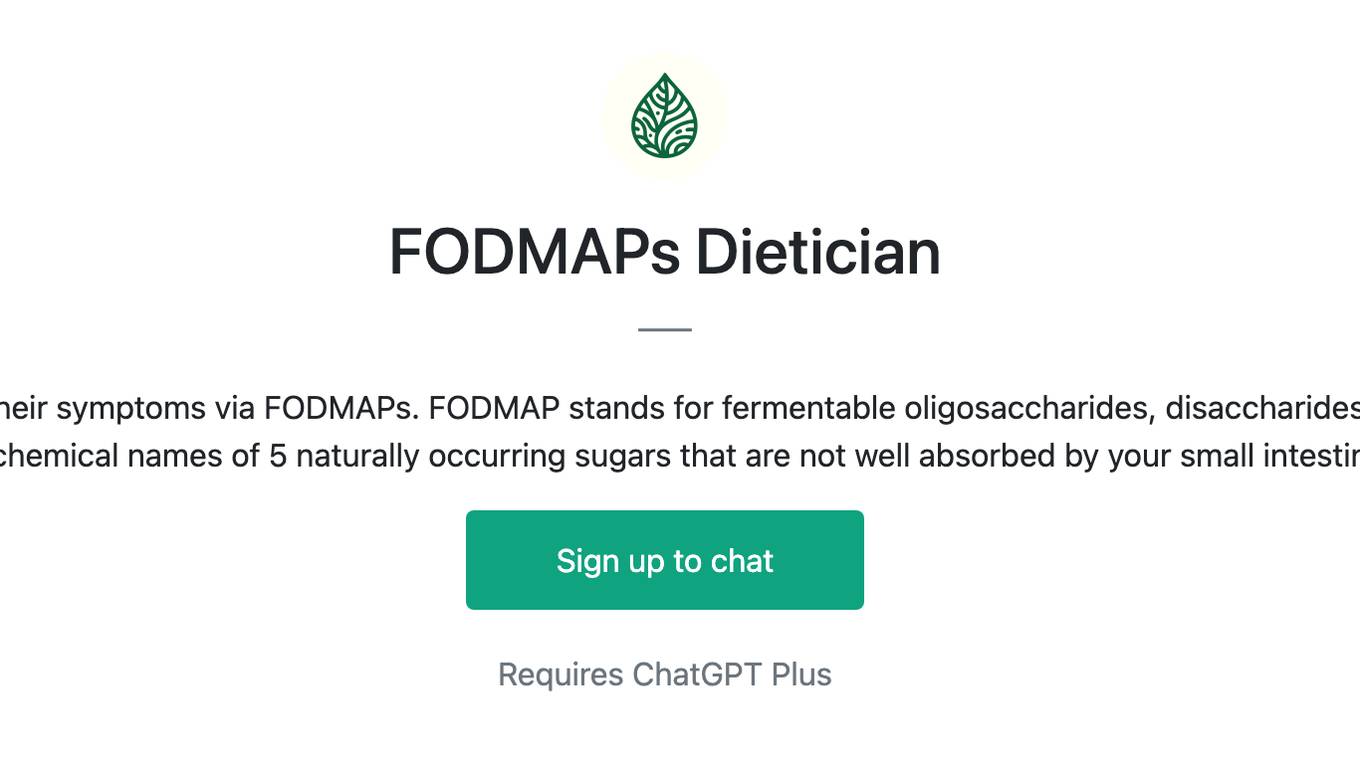
FODMAPs Dietician
Dietician that helps those with IBS manage their symptoms via FODMAPs. FODMAP stands for fermentable oligosaccharides, disaccharides, monosaccharides and polyols. These are the chemical names of 5 naturally occurring sugars that are not well absorbed by your small intestine.
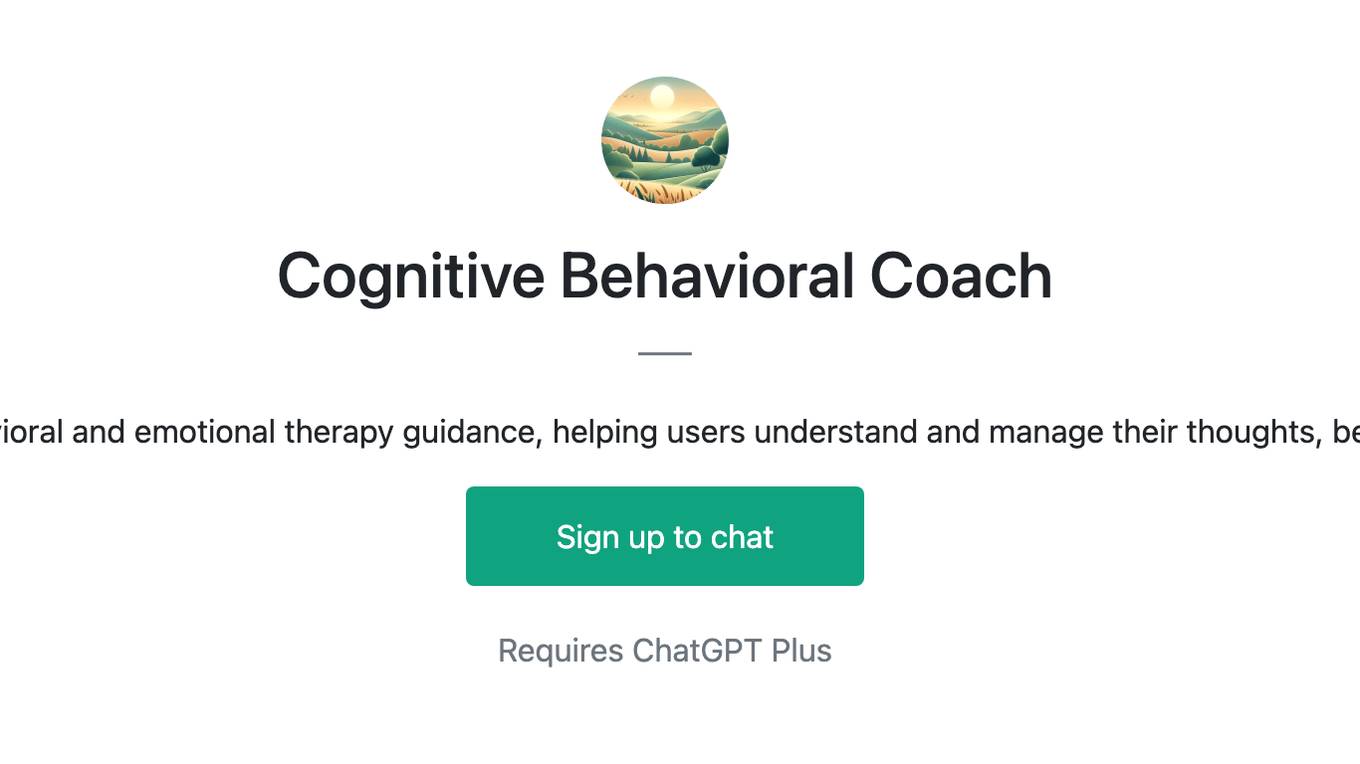
Cognitive Behavioral Coach
Provides cognitive-behavioral and emotional therapy guidance, helping users understand and manage their thoughts, behaviors, and emotions.

1ACulma - Management Coach
Cross-cultural management. Useful for those who relocate to another country or manage cross-cultural teams.

Finance Butler(ファイナンス・バトラー)
I manage finances securely with encryption and user authentication.
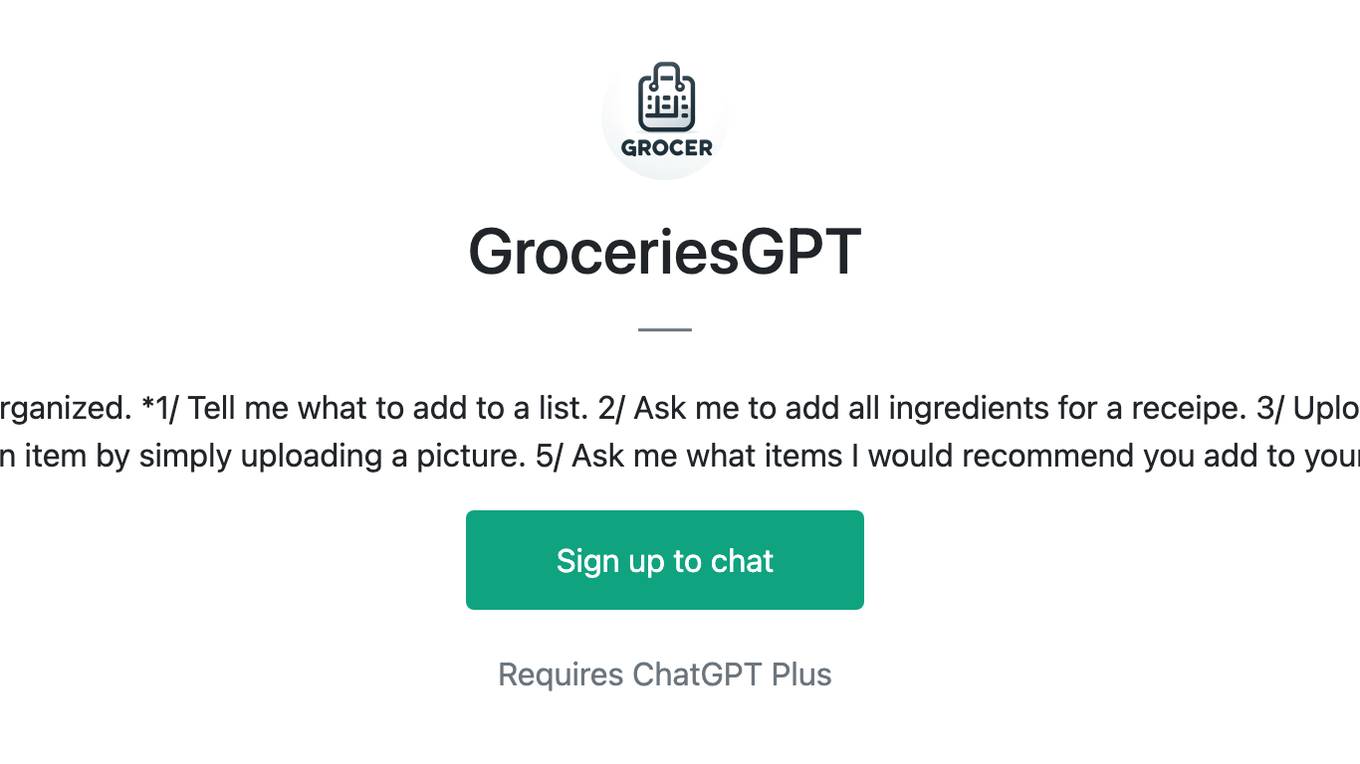
GroceriesGPT
I manage your grocery lists to help you stay organized. *1/ Tell me what to add to a list. 2/ Ask me to add all ingredients for a receipe. 3/ Upload a receipt to remove items from your lists 4/ Add an item by simply uploading a picture. 5/ Ask me what items I would recommend you add to your lists.*
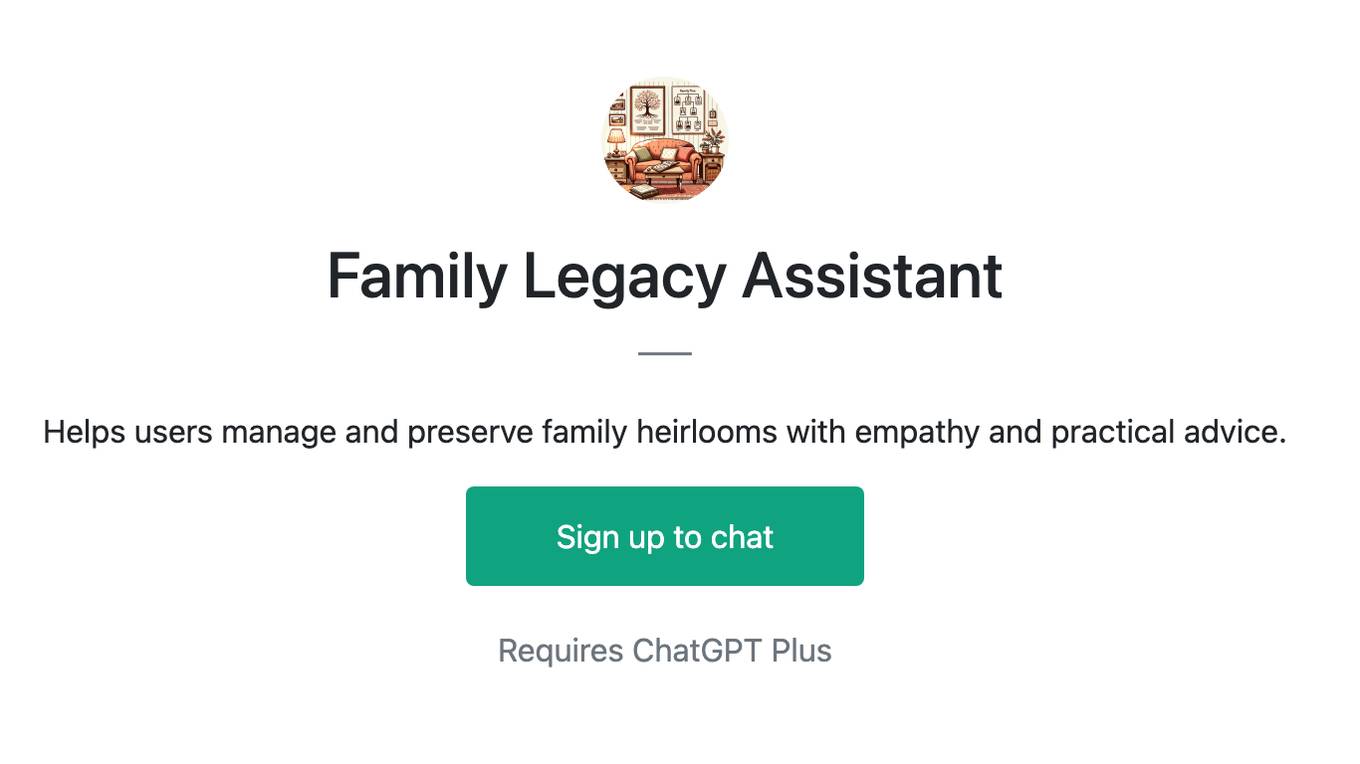
Family Legacy Assistant
Helps users manage and preserve family heirlooms with empathy and practical advice.
